Departure date for 2015: 11 March
You will never forget ethnical tour to the cannibals of Papua full of adventures and breath-taking discoveries.
Do you want to join in our journey? Let's do it!
![]()
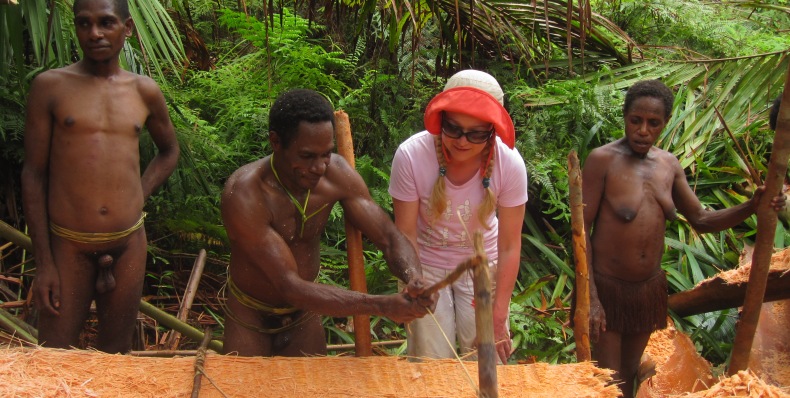
Why go?
A unique adventure tour, down the meridian of the entire New Guinea, and covers the most remote areas of this mysterious island, from the distant swamps of the south, to the mountainous center in the hidden and hard to reach north-western part of the Baliem Valley, as well as the Pacific coast of North uninhabited Papua.
Your experience will give you the opportunity to explore one of those far-reaching corners of our planet where people still live in the Stone Age, and where until recently flourished cannibalism.
The main objective - to visit the tribes of the Wetland Forests in the Southern part of New Guinea, which is the second largest island in the world after Greenland.
You will be able to understand the life of these tribes who have ceased practicing cannibalism with fellow citizens of the island, although this is only a recent development ( according to the official version) which has happened a few years ago.
This is unusual and sometimes shocking tropical realm of our planet, which also includes Australia, New Zealand and the islands of Oceania.
What is unique about our tour?
You could do this yourself, but it would cost you a lot more in money and time, without expert local knowledge you may encounter many disappointments, and false promises.
Our route will take you off the beaten track away from the usual tourist places.
Before time runs out and civilization takes over, you must see this hard to reach jungle, where the only facilities are what you carry with you, tents and camping will soon will be gone.
Traveling is easy but with a slight chance of risk - in particular, our route will take place near the territory of the Papuan community, where nobody dears to visit not even the fearless missionaries.
We have been touring here since 2014, aiming to explore all of the remote areas and seeking out places where the true indigenous tribes still exist, we continue to strive for those who are not intermingled with civilization Korowai, or have been exposed to western visitors.
The tour in a nutshell:
- Jakarta - Jayapura - Wamena (Central Papua). Driving to the far north-western part of the Baliem Valley, visiting the Lani hill tribe. Night in a Papuan house. Excursion Trekking to the mountains, mountain forest and caves.
- Flight to the south of New Guinea and 7-day boat and trekking trip with a backpack (shared expedition equipment is carried by local porters during the jungle trek) in the deep jungles of New Guinea. Visiting communities of famous Korowai tribe which live on the trees and still sometimes practice cannibalism. All nights during the trekking in the tents.
- Flight to the north of New Guinea (2 days relaxing on the fabulously beautiful wild beach lines the jungle, snorkeling, swimming.
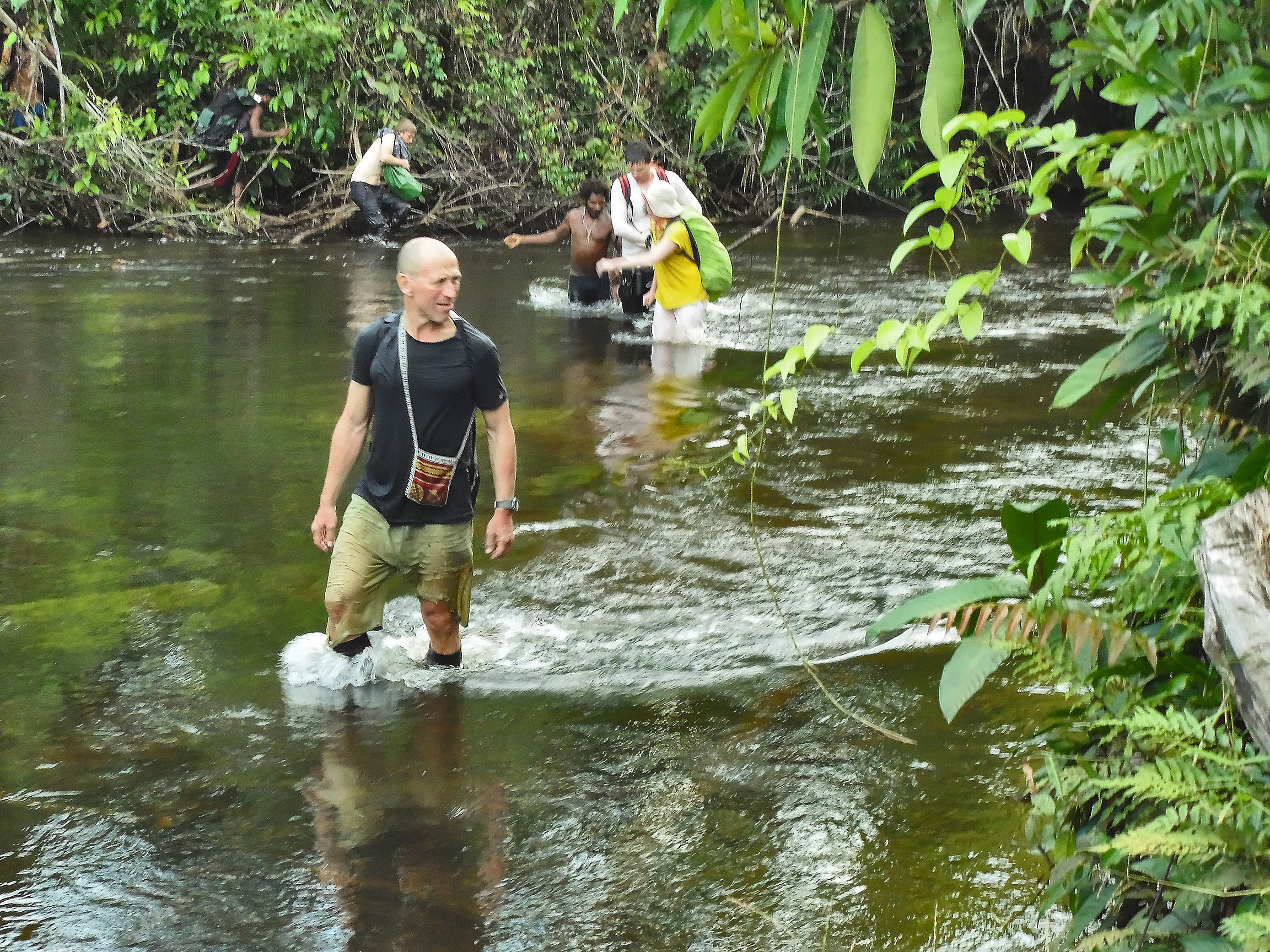
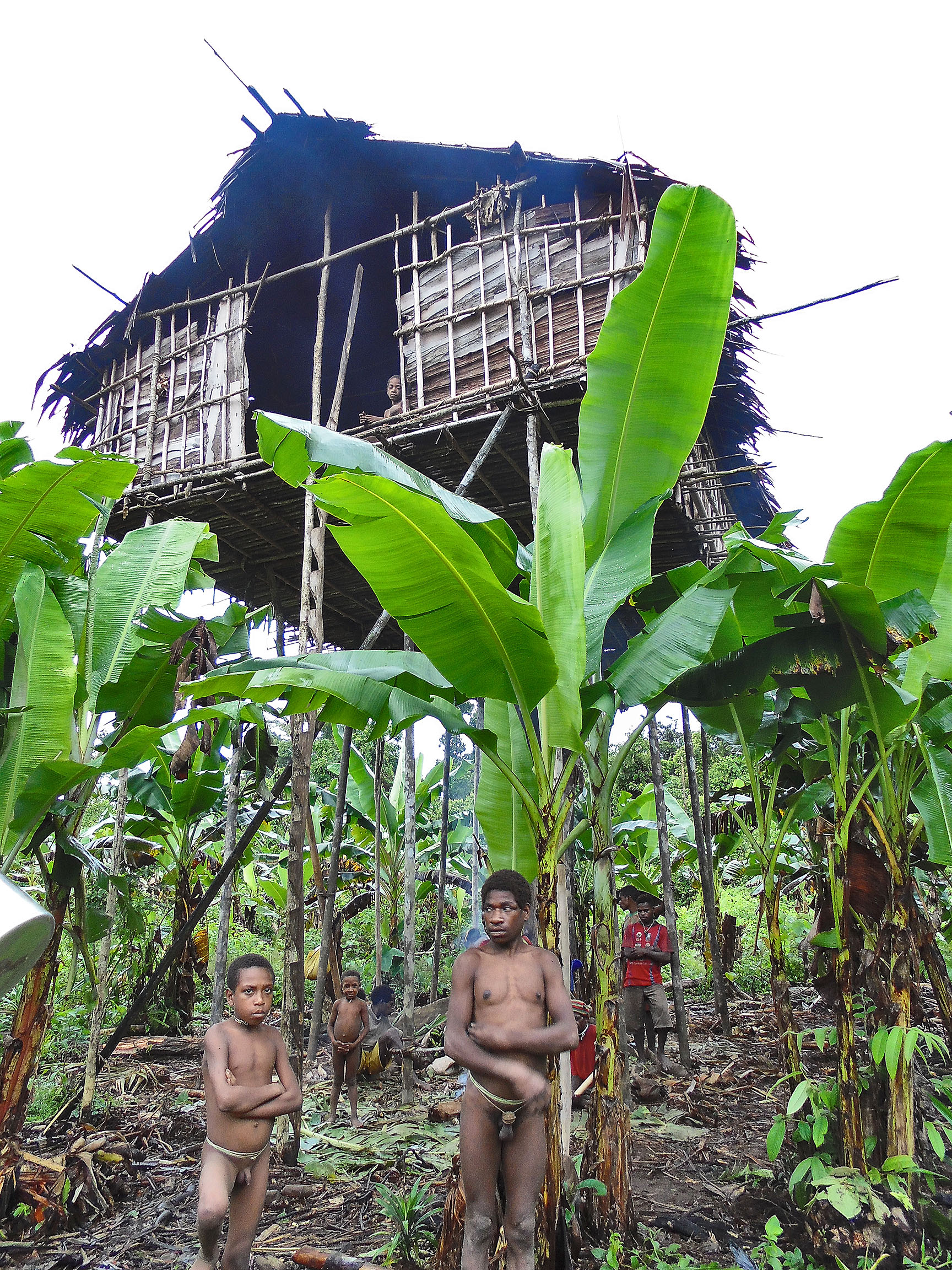
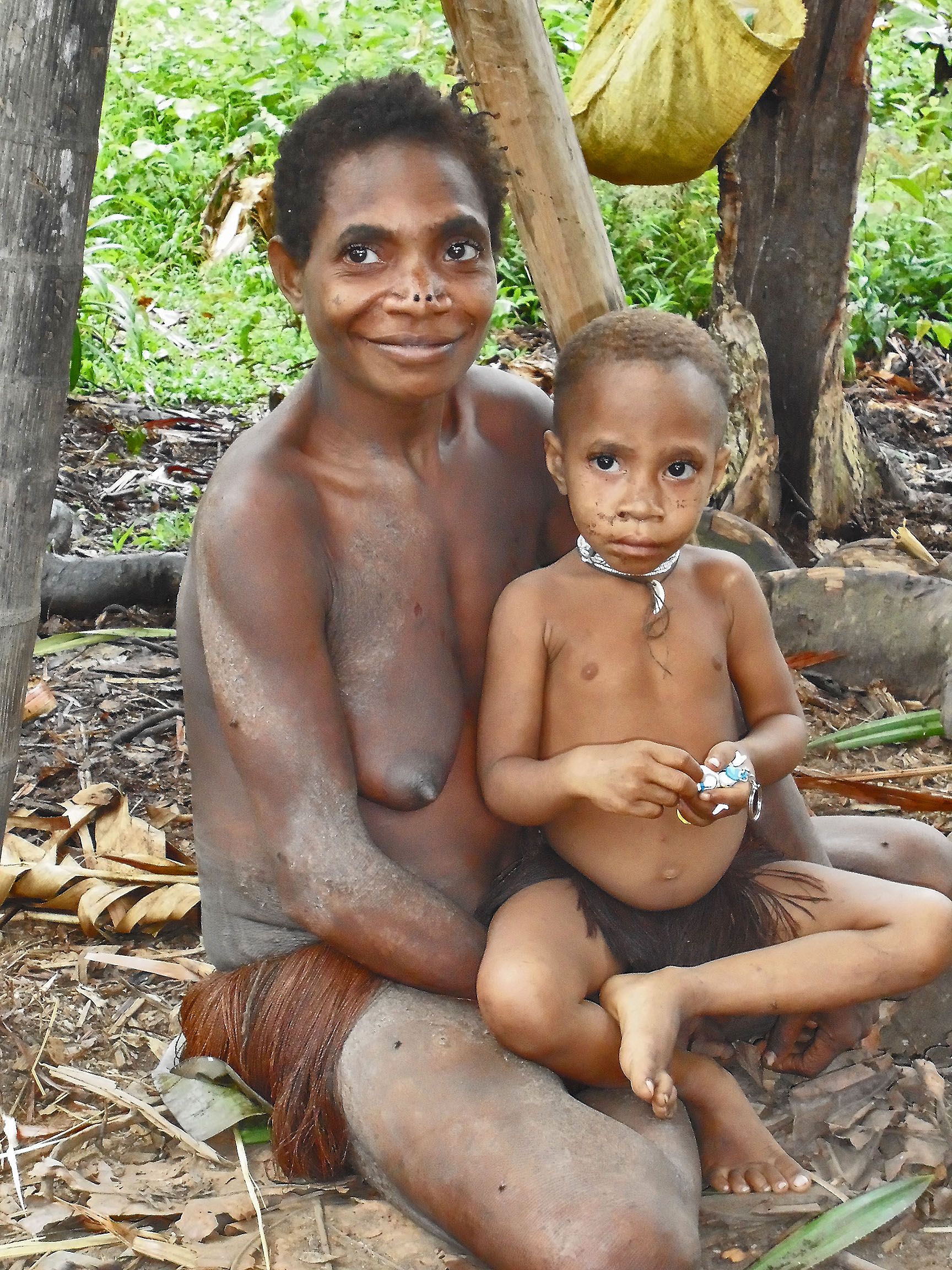
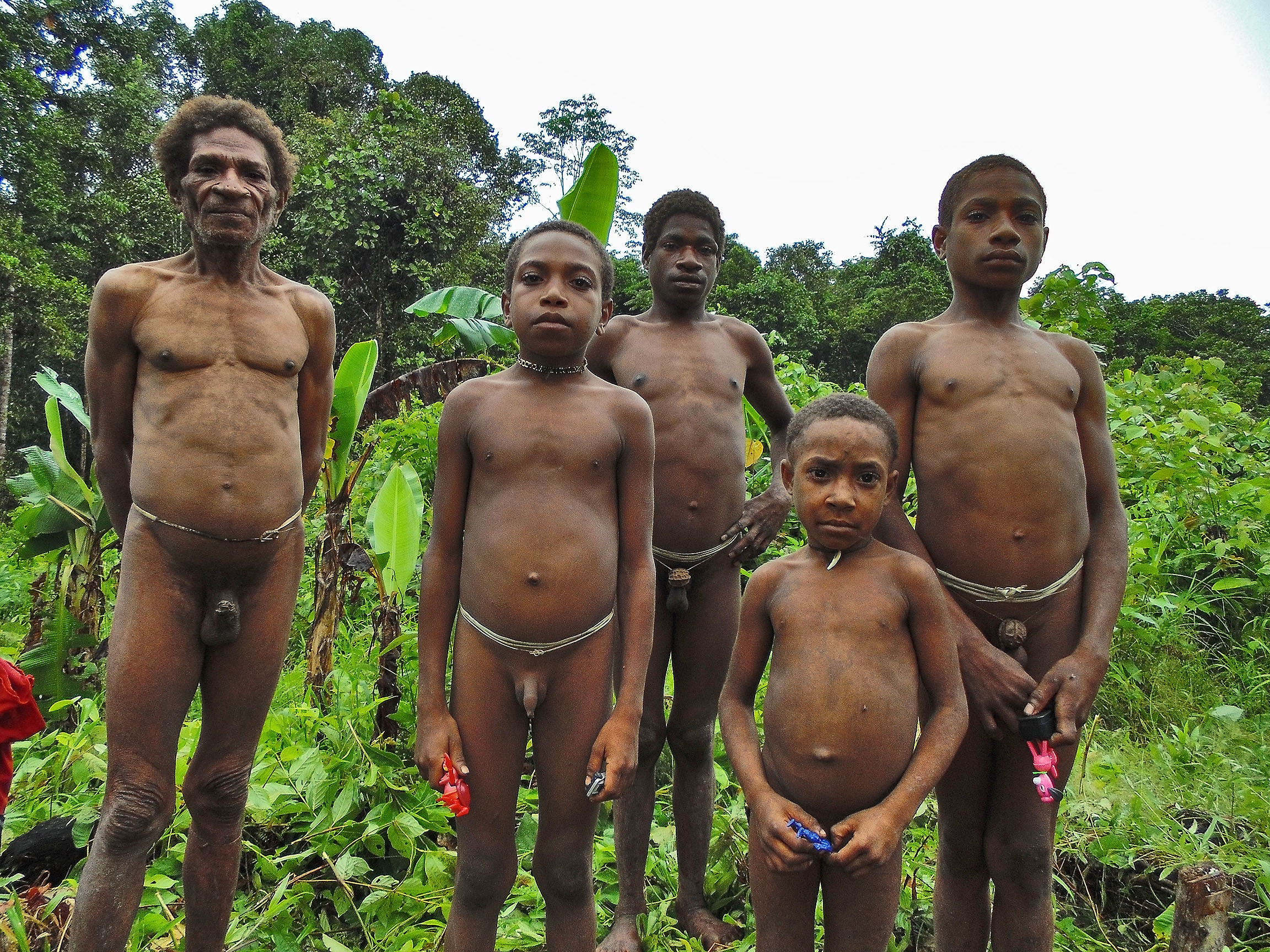
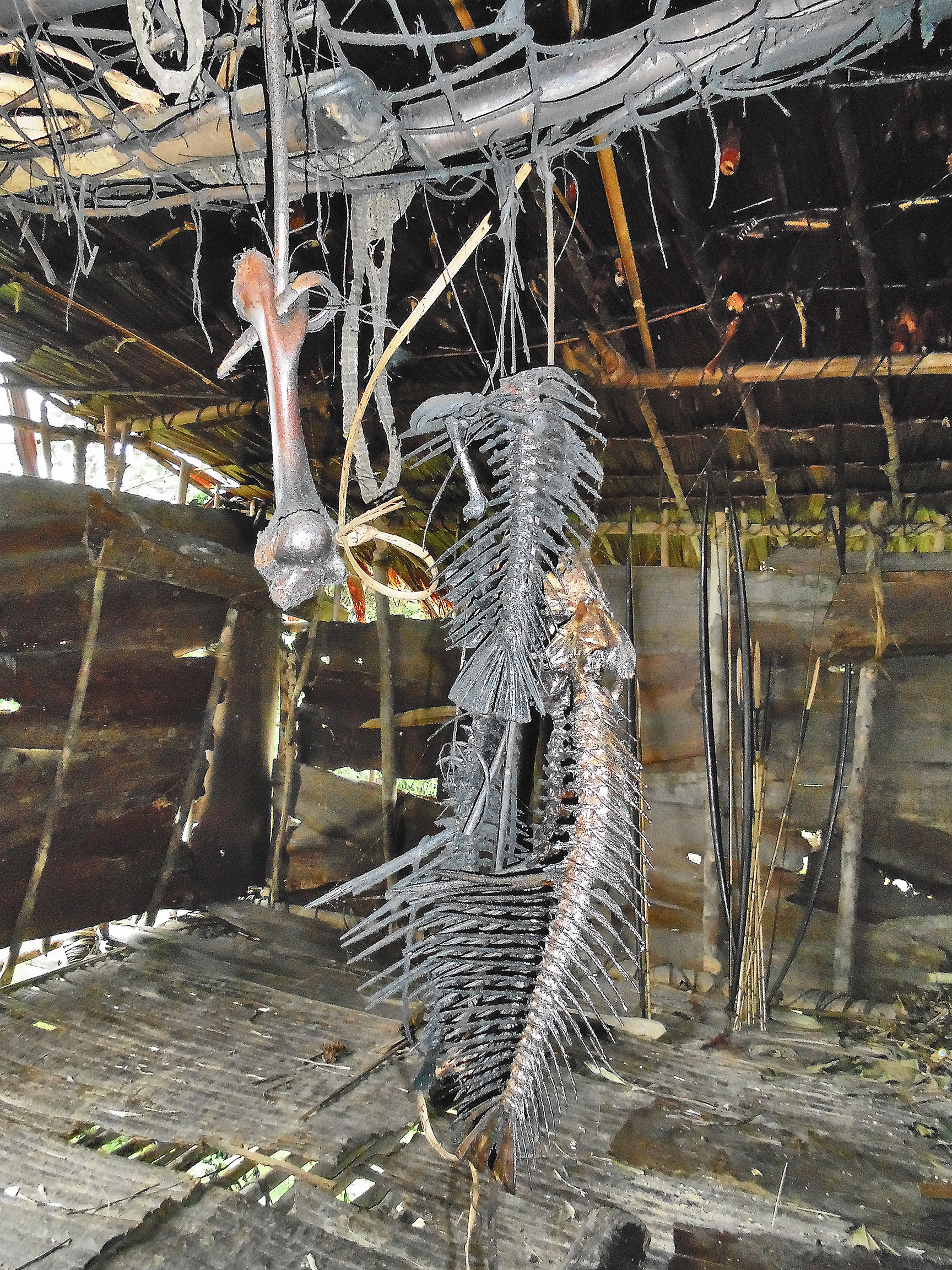
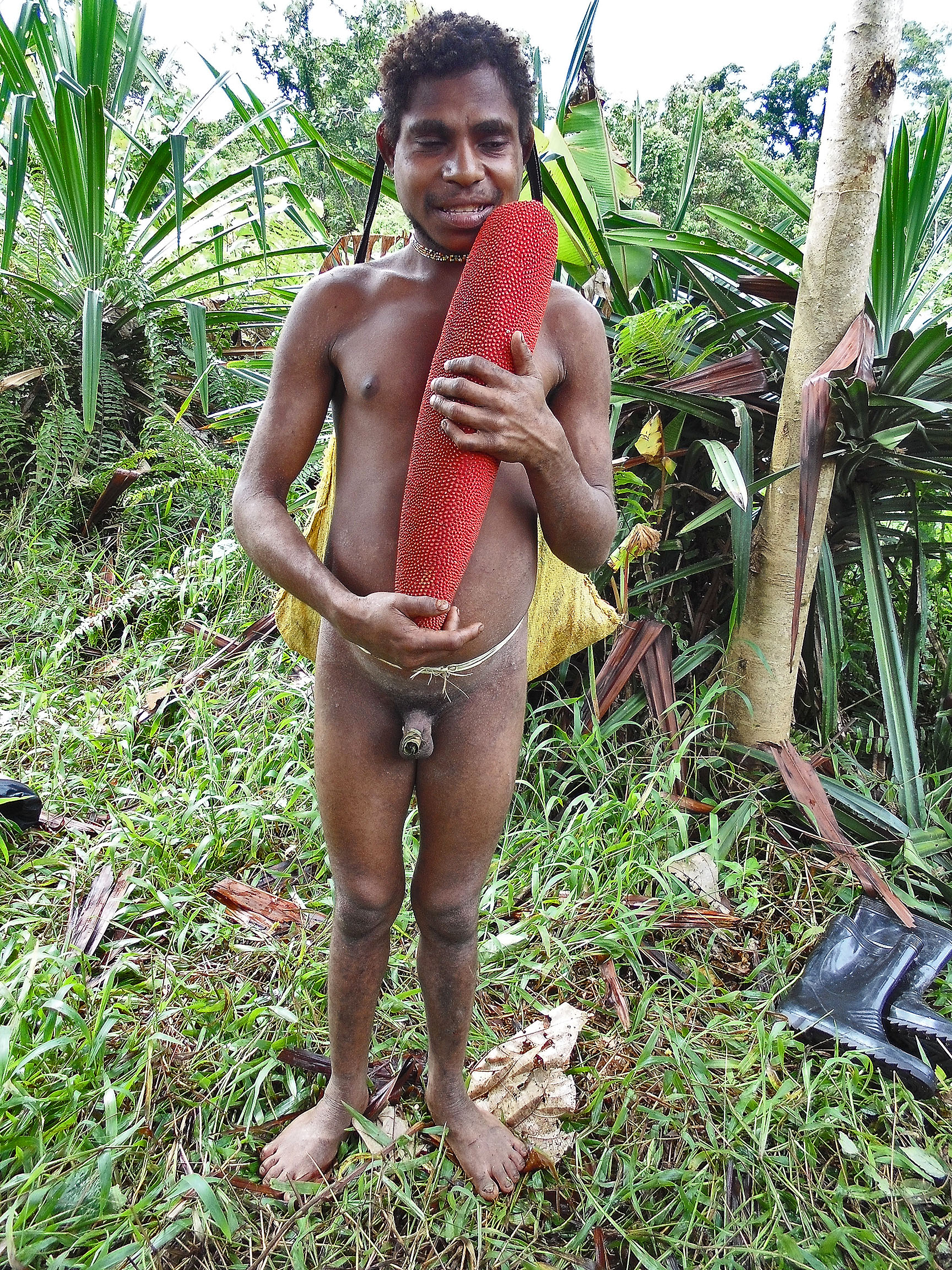
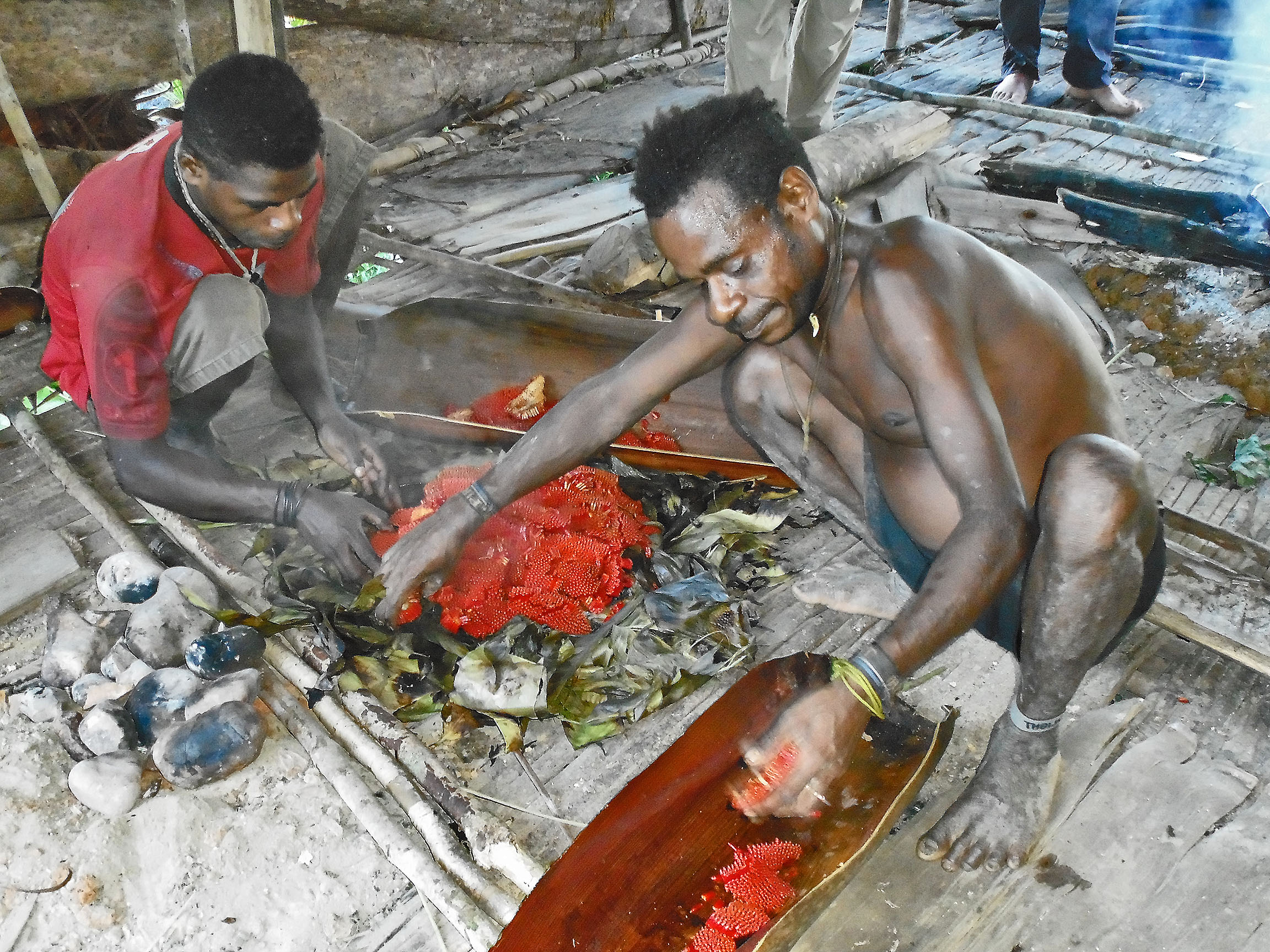
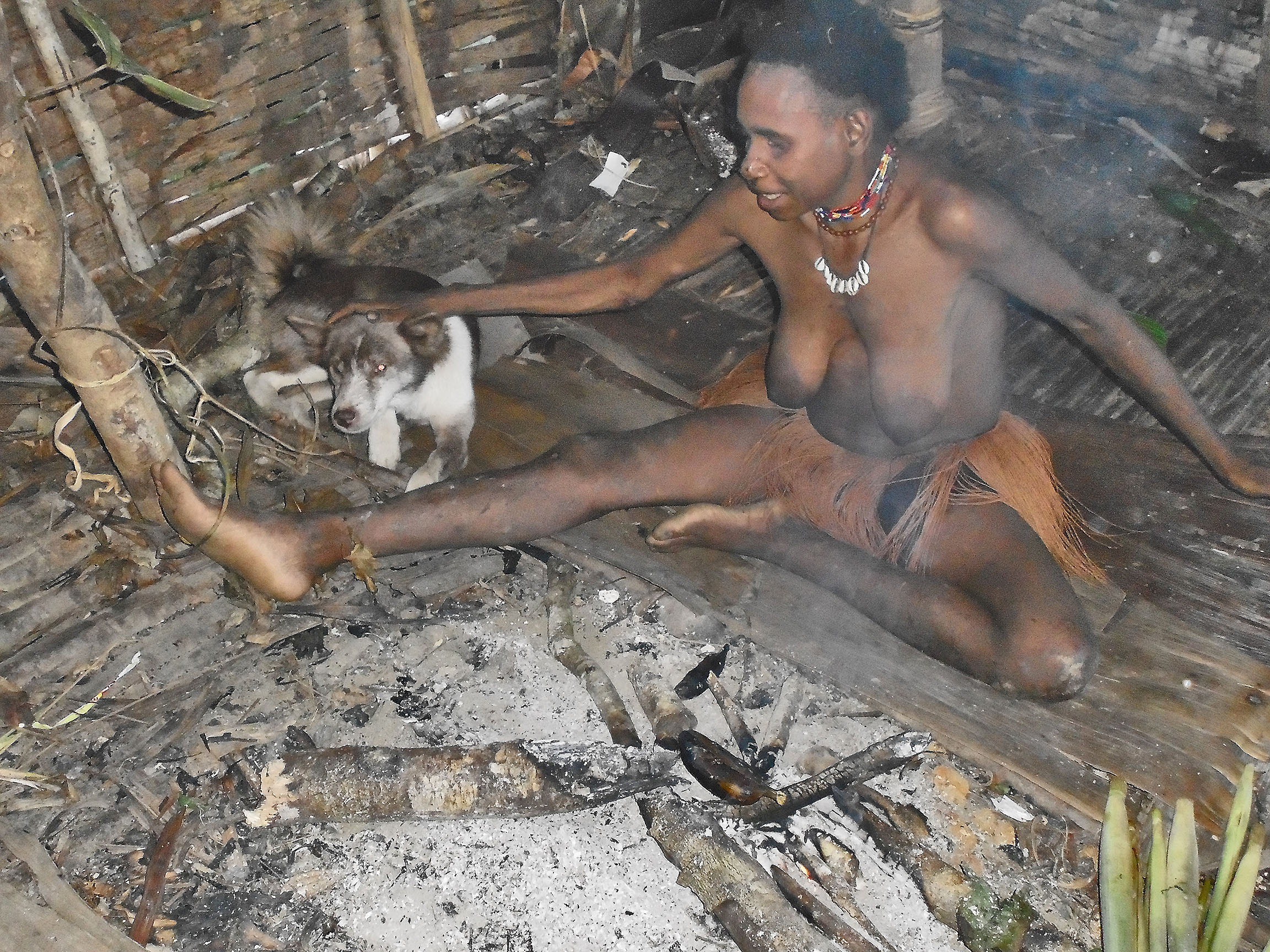

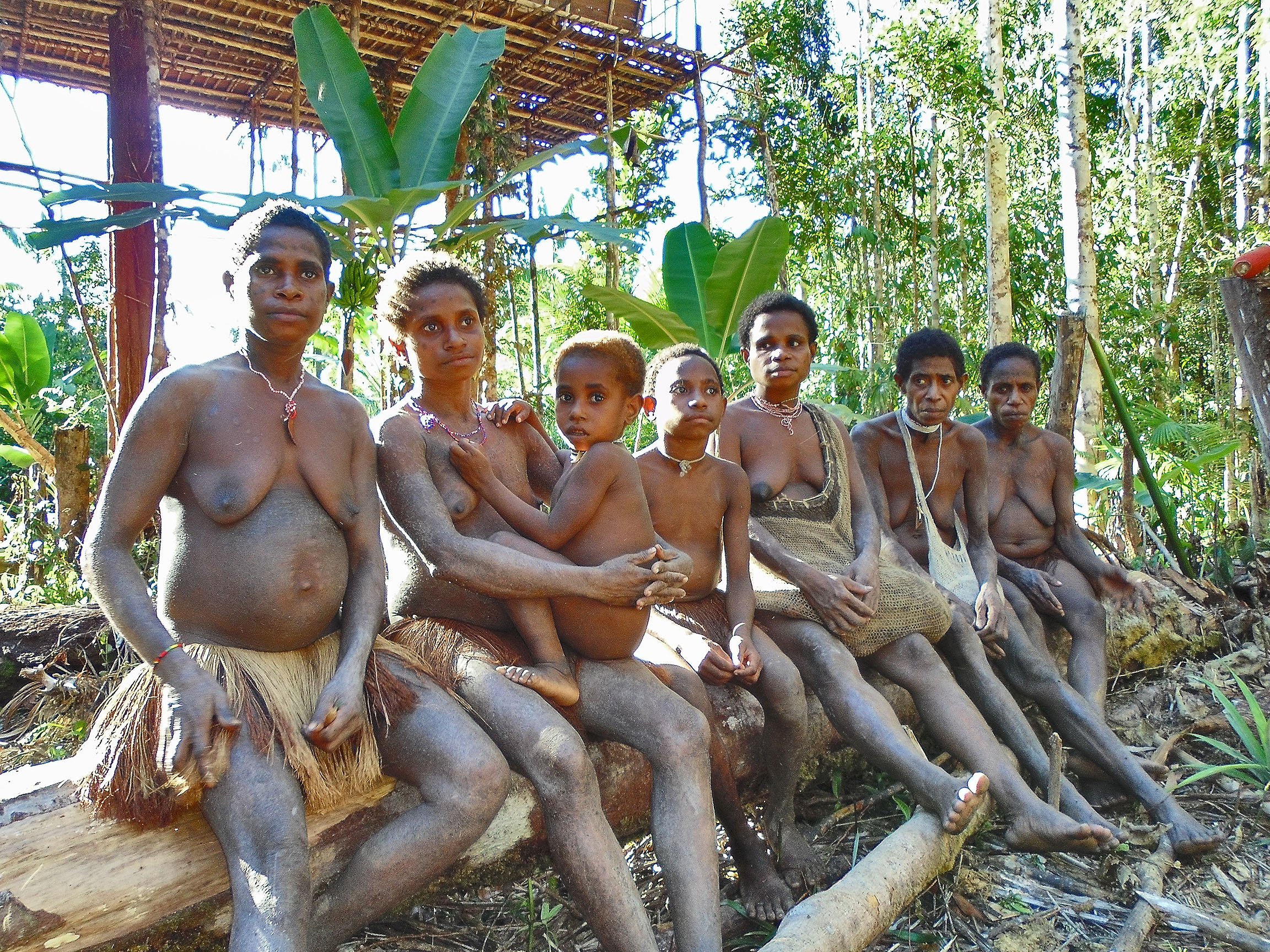
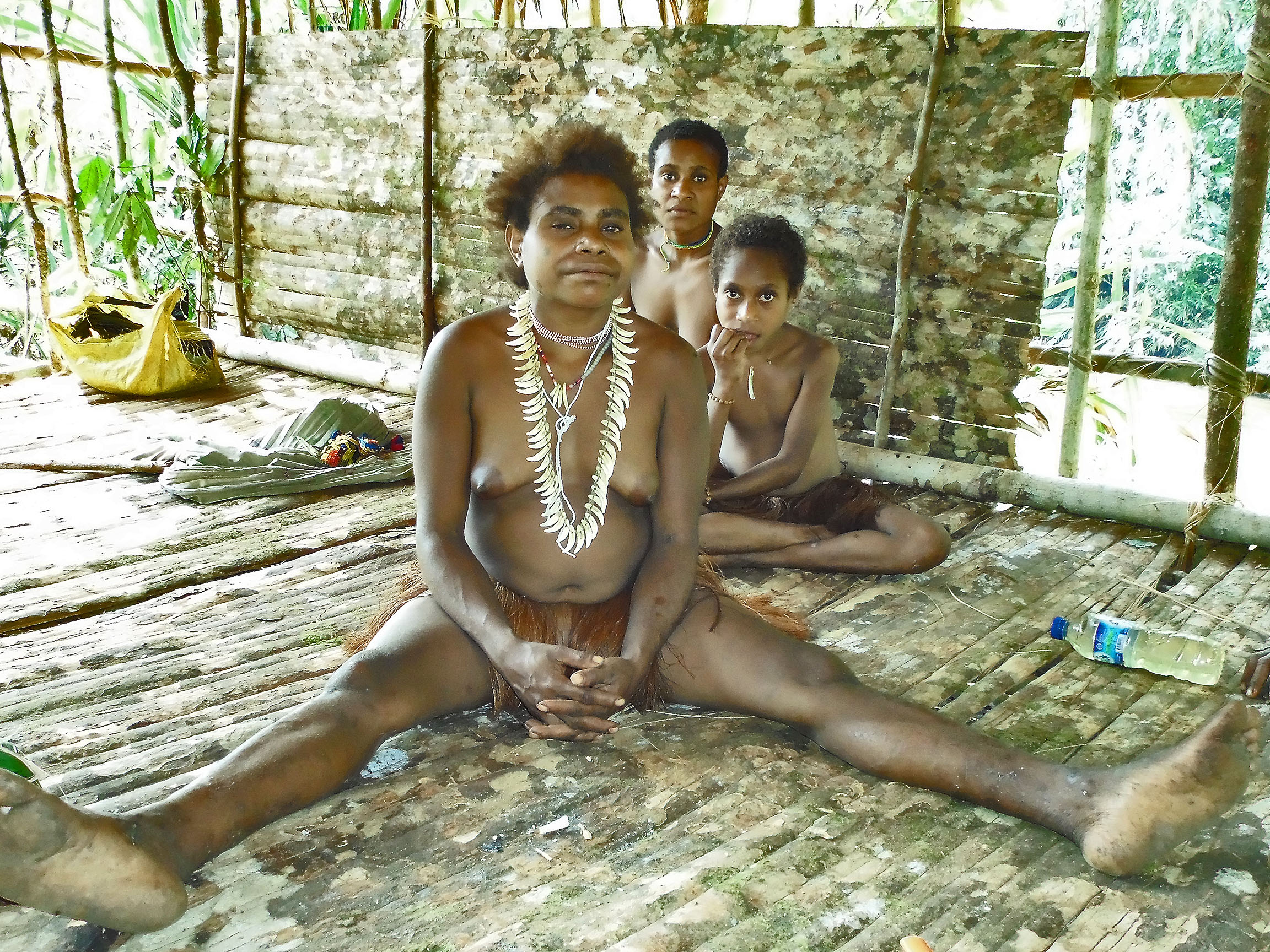

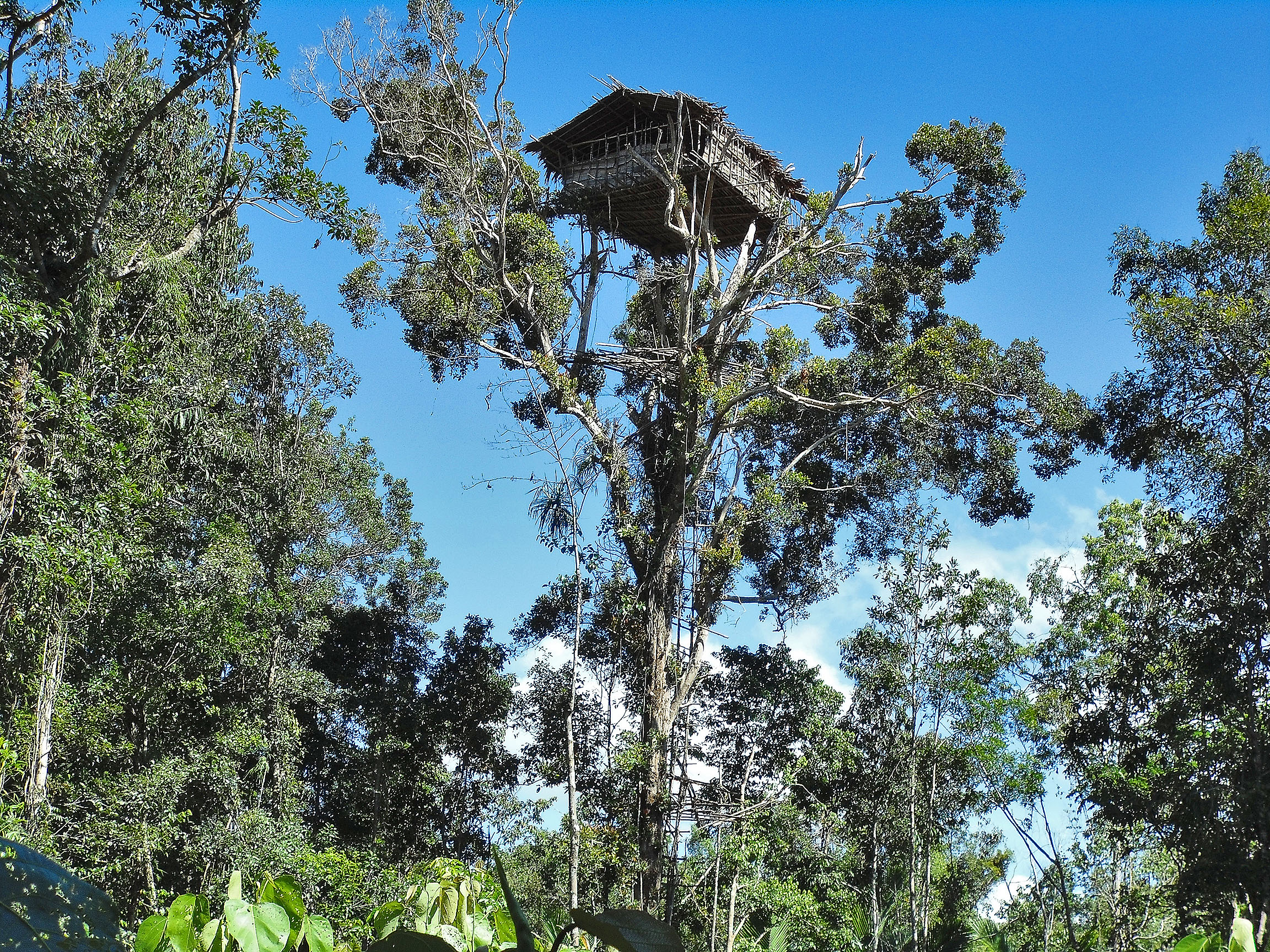
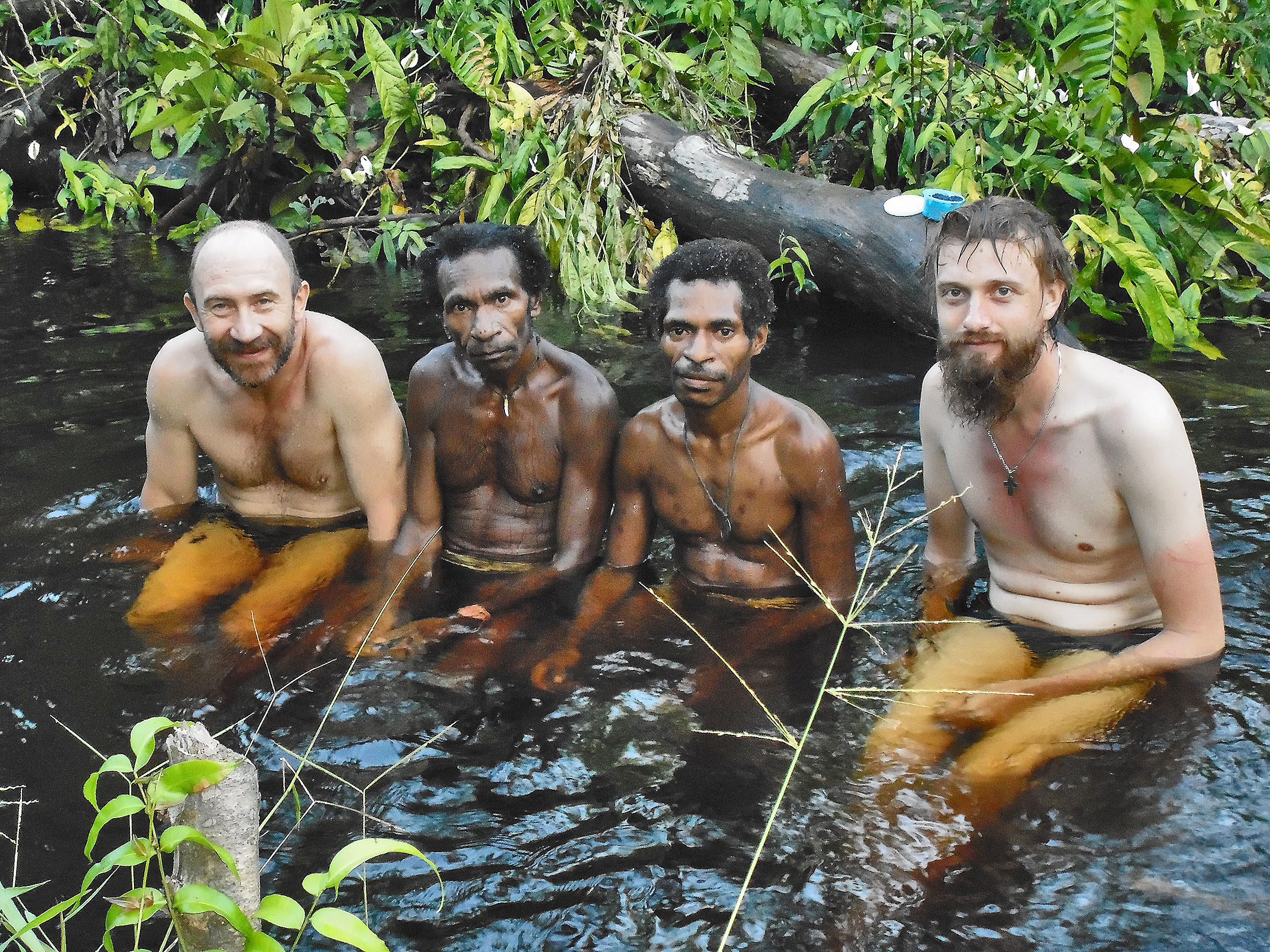
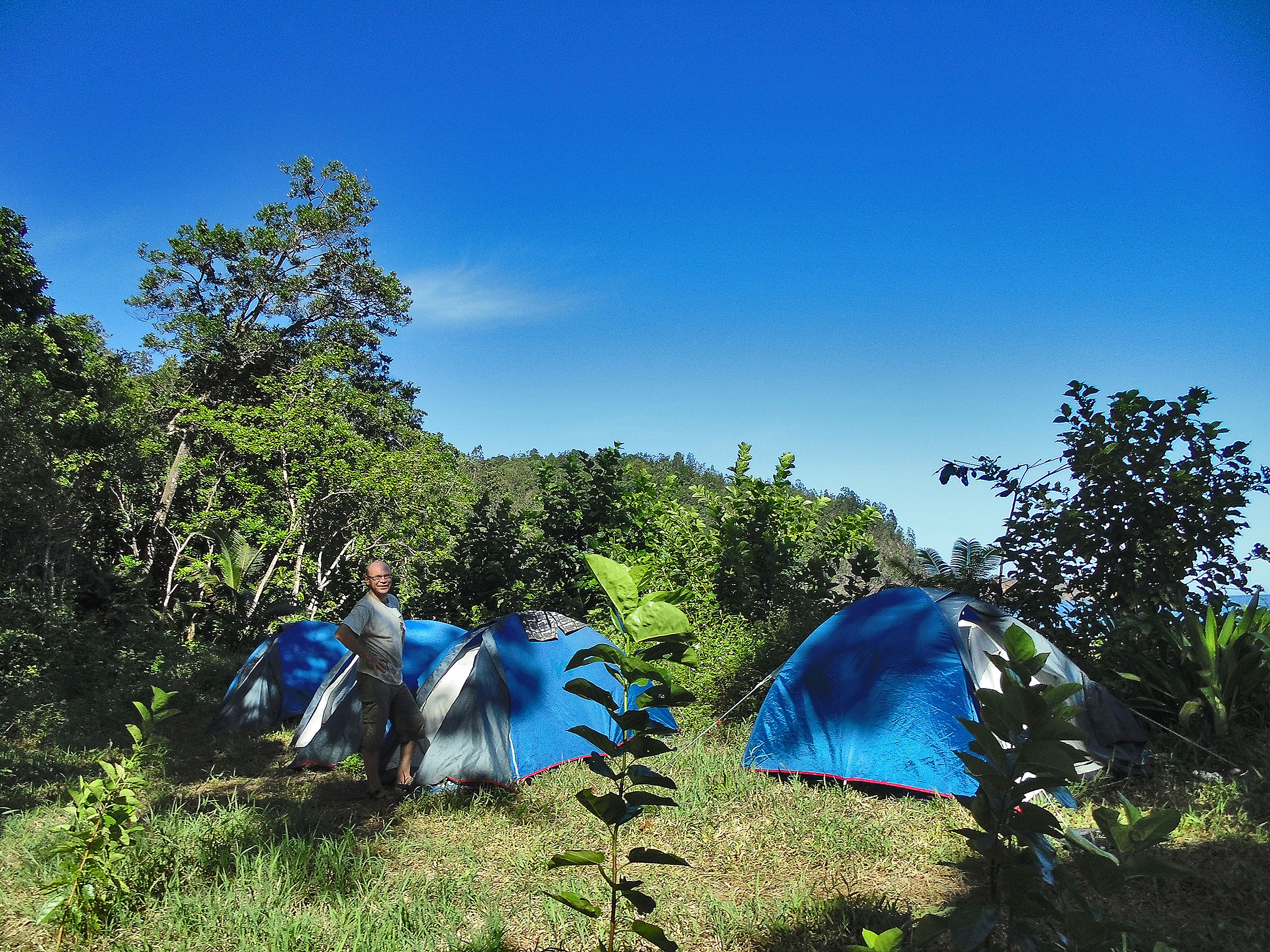
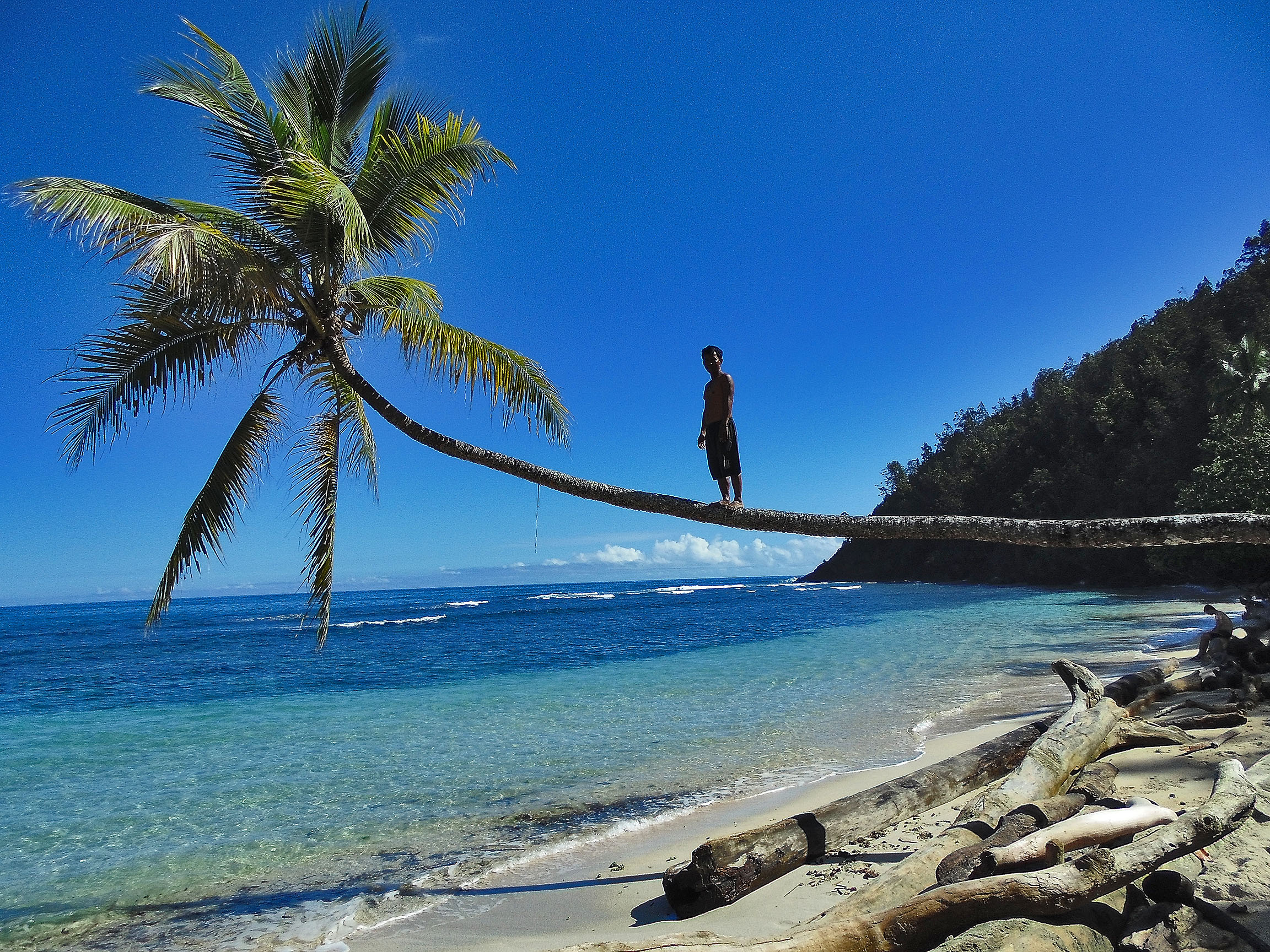
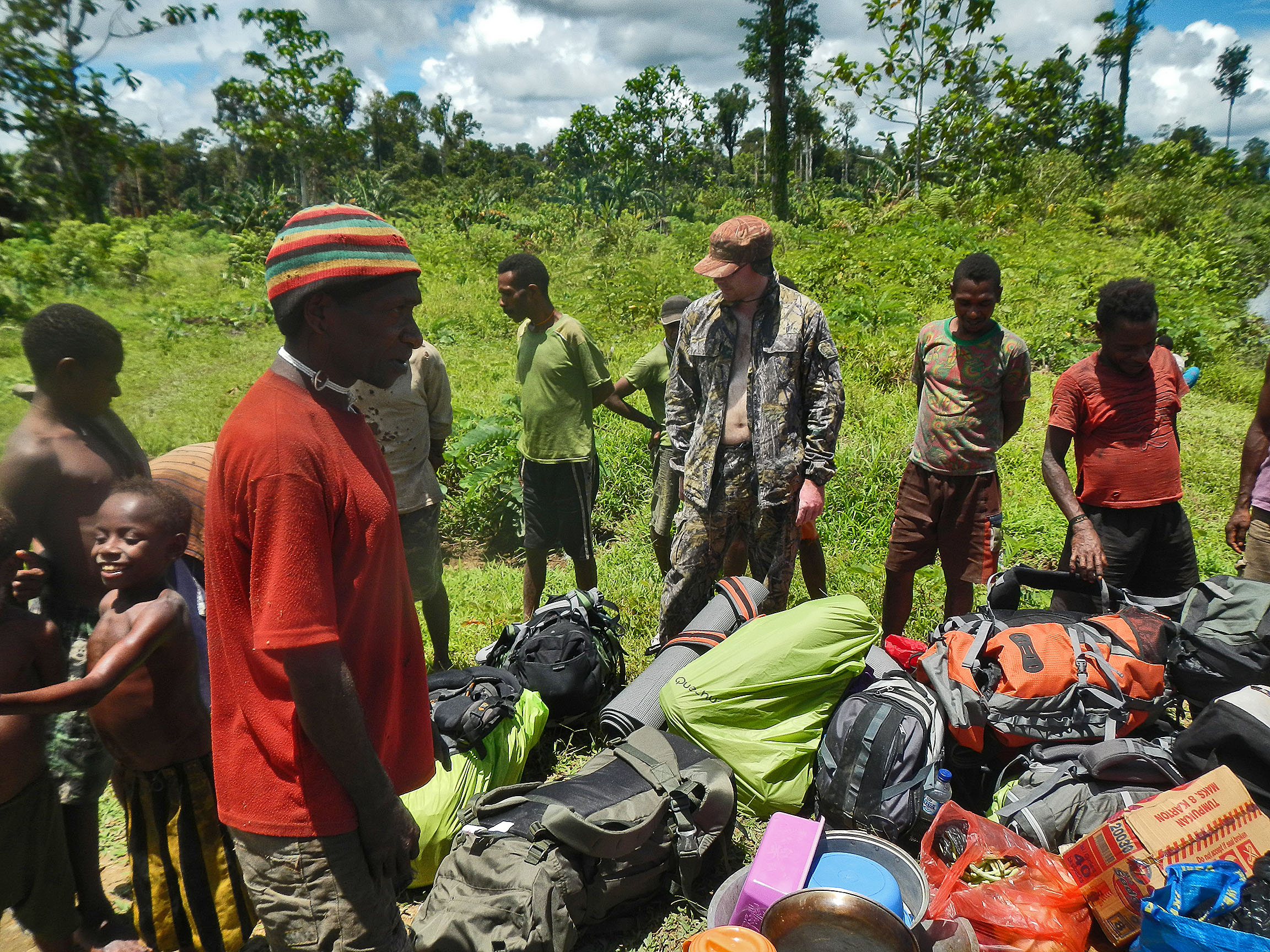

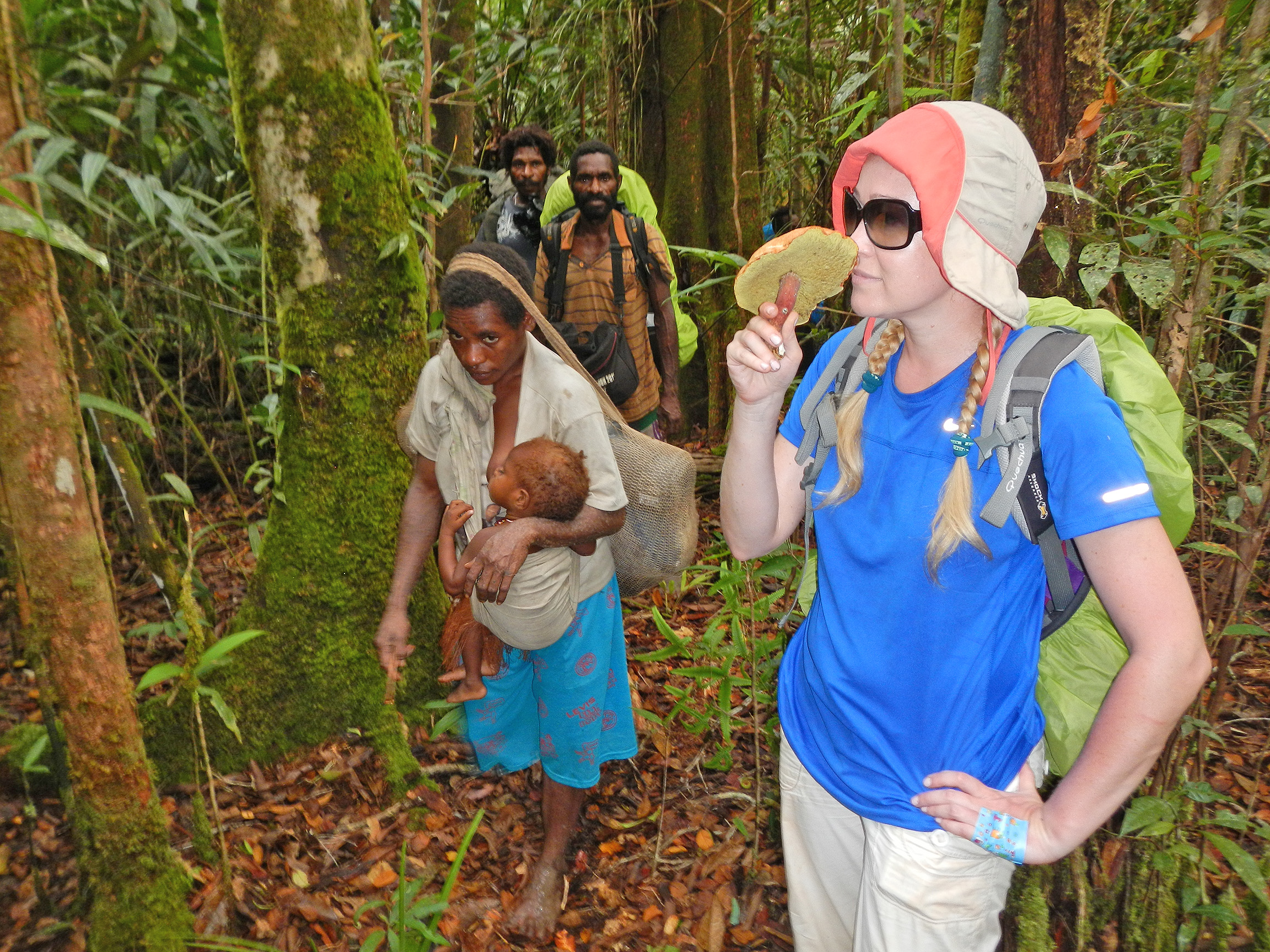
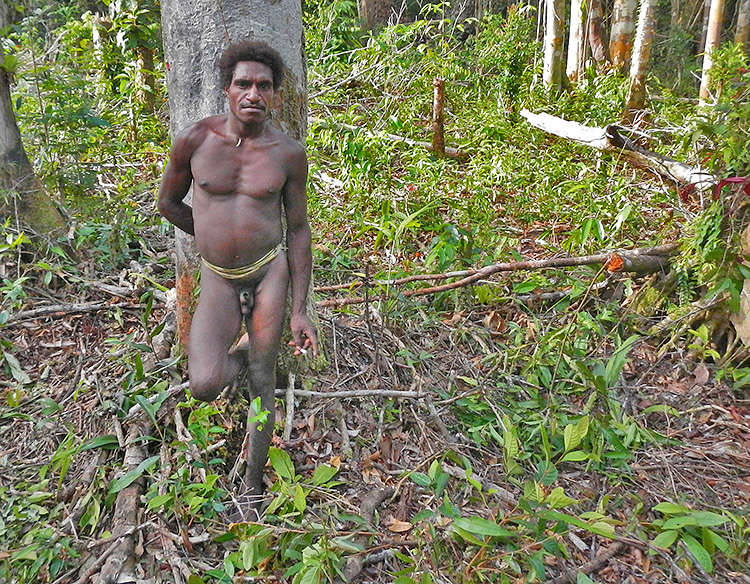
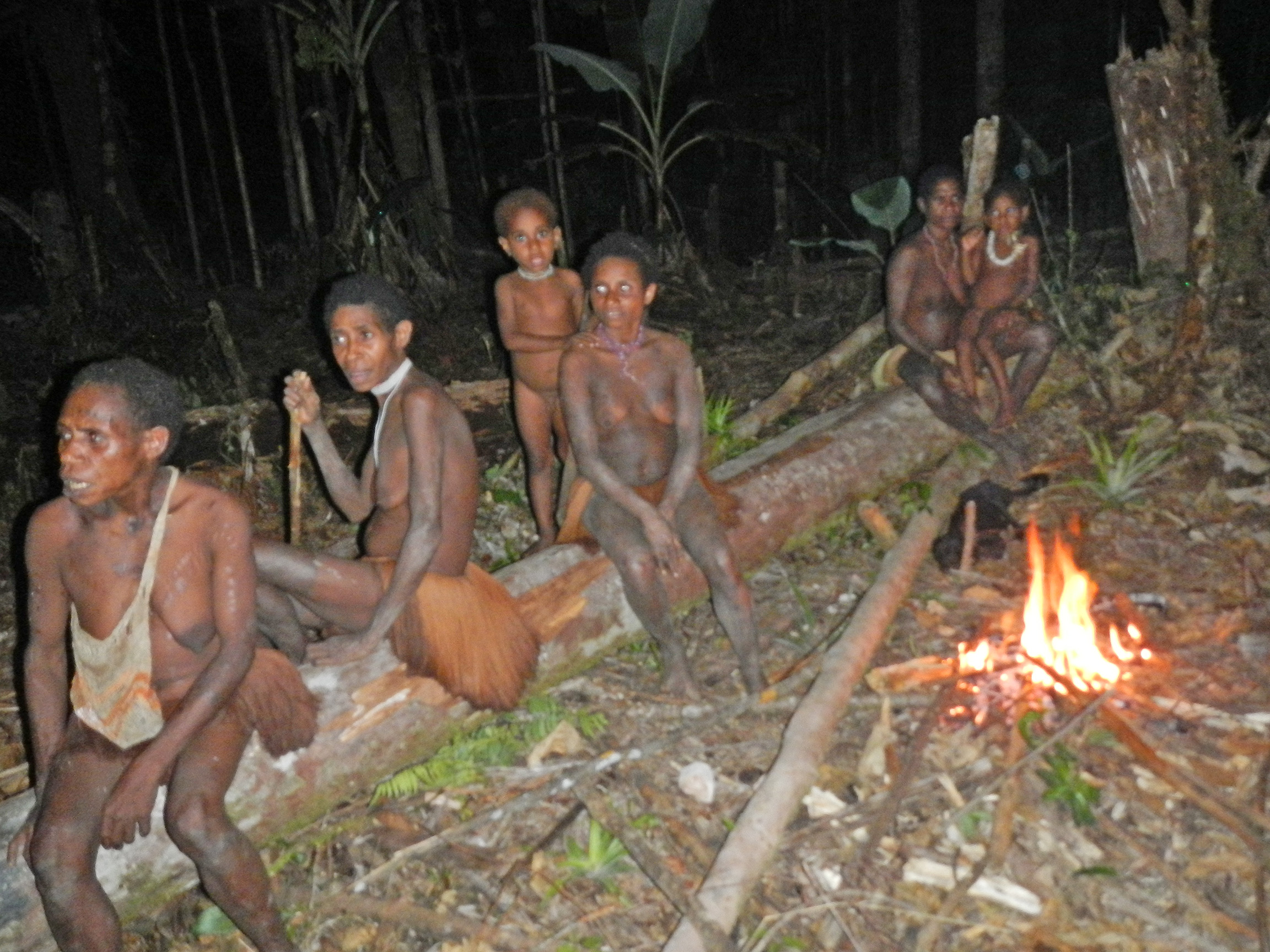
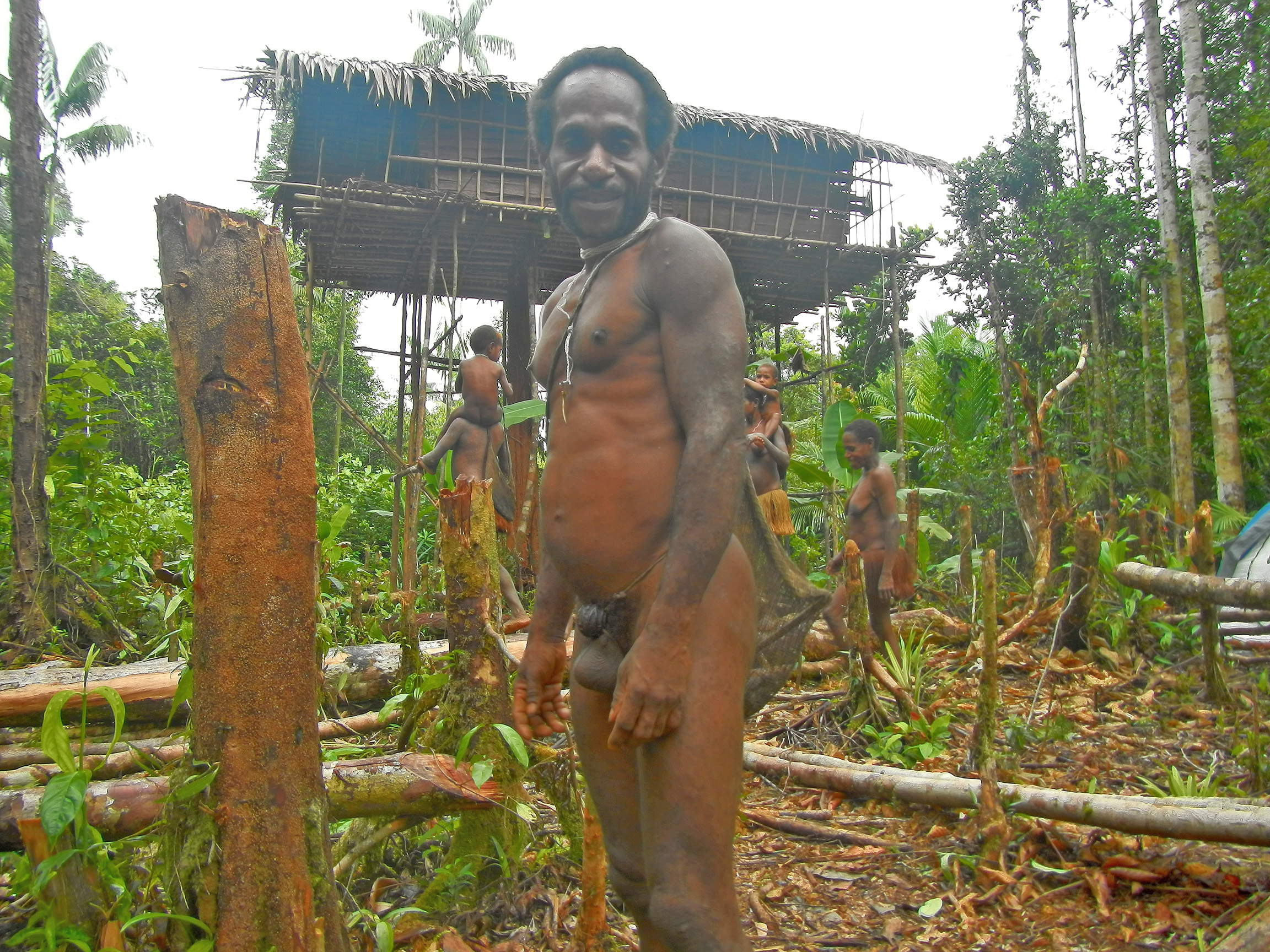
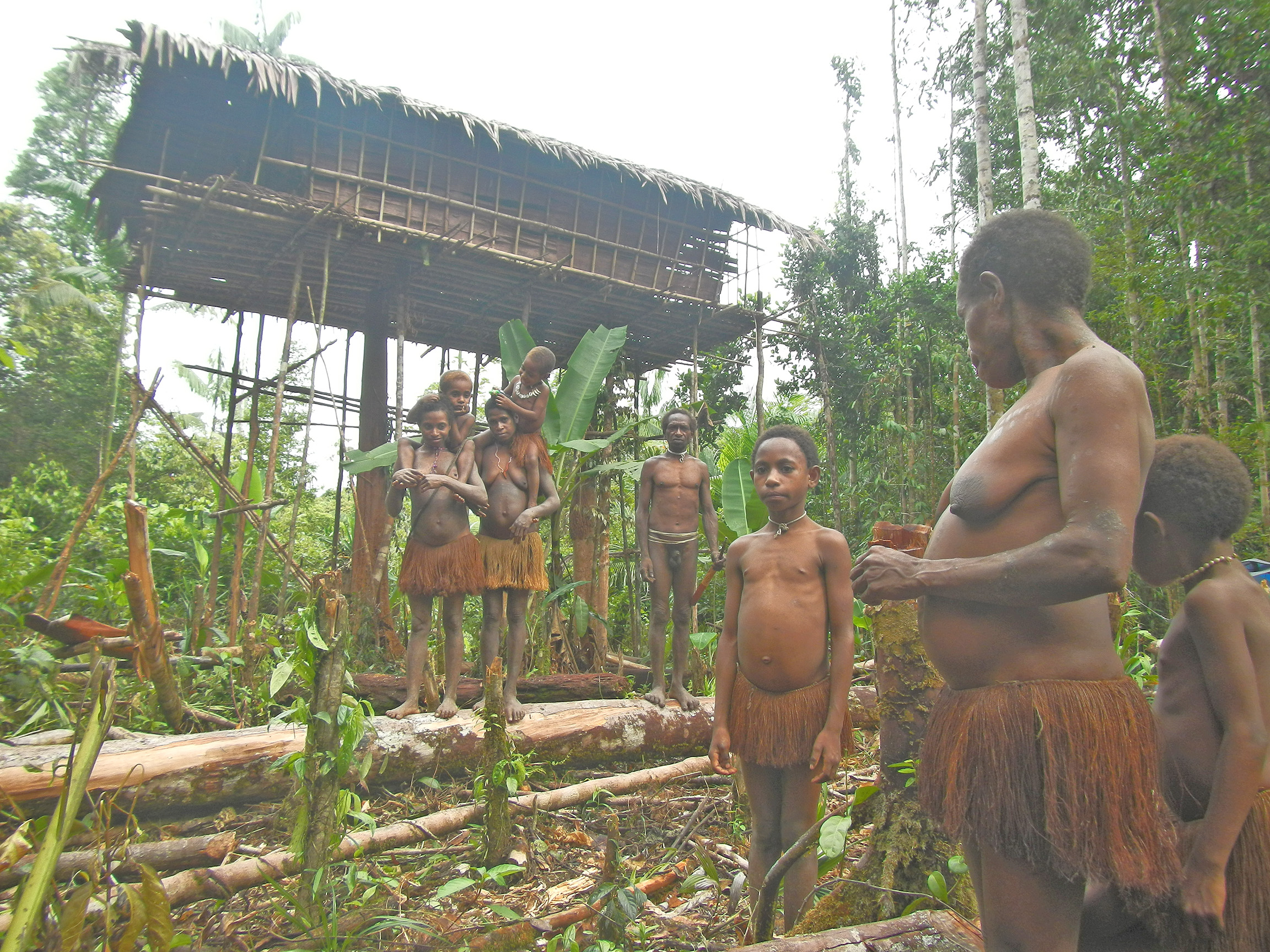
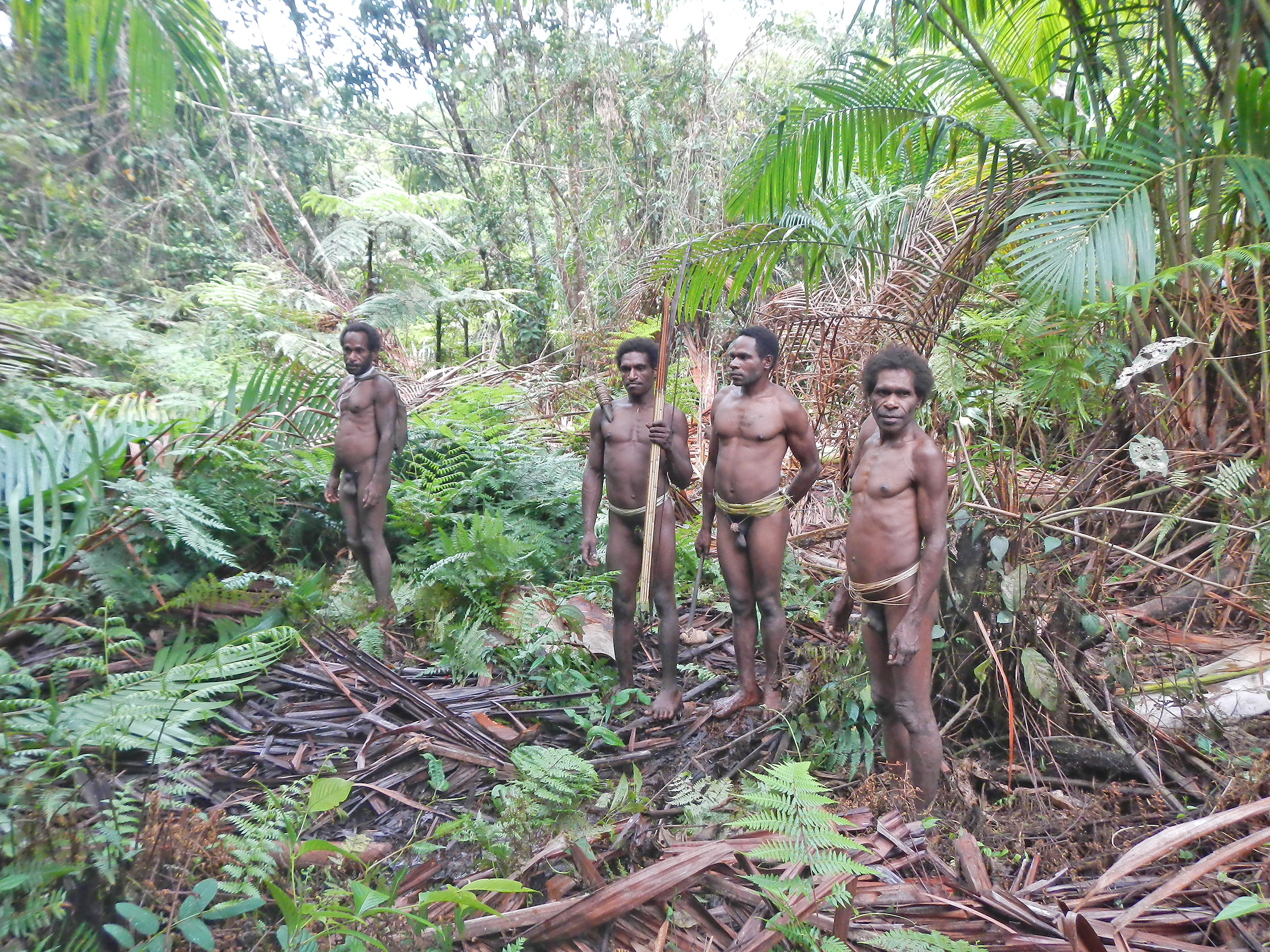
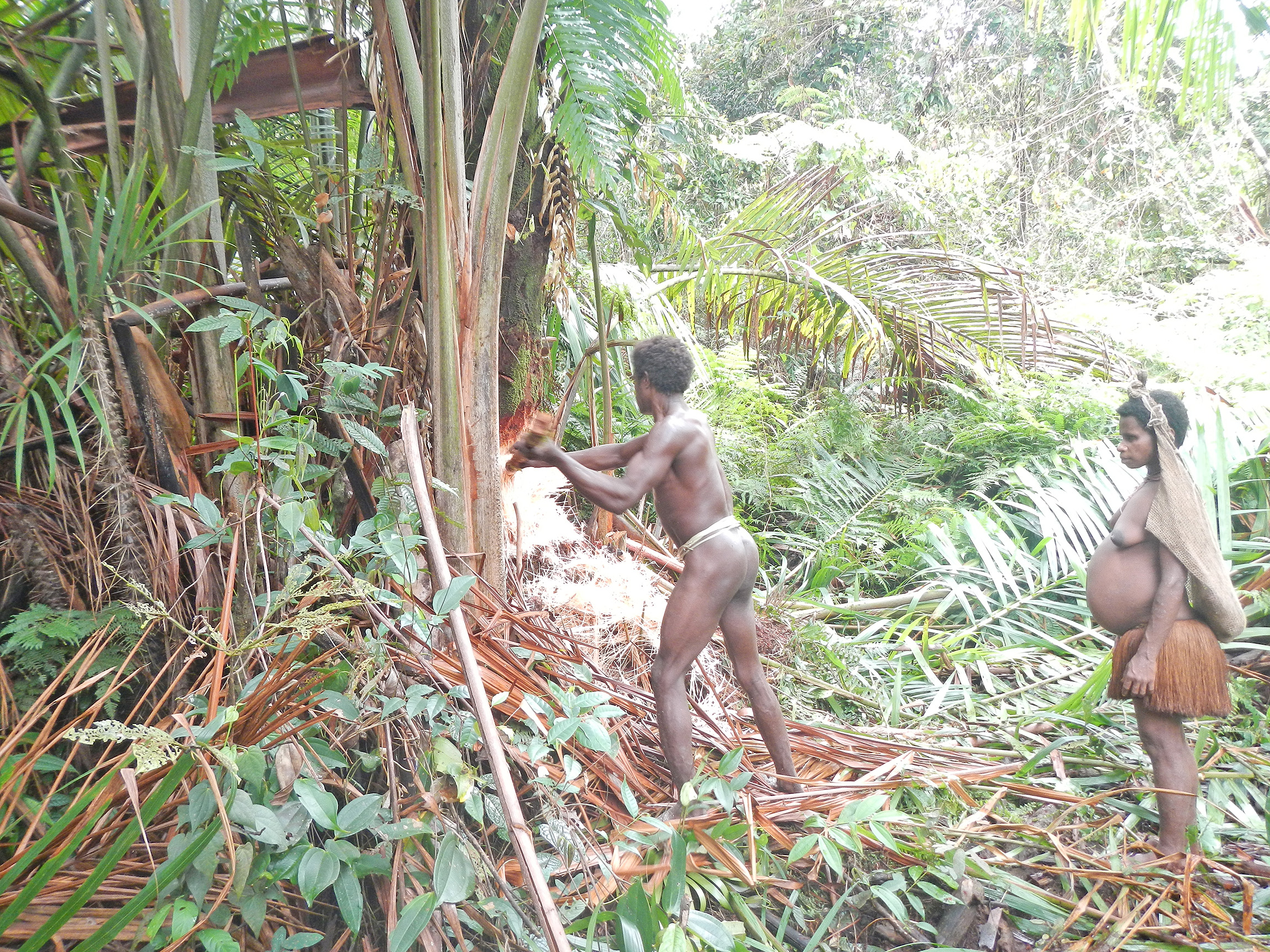
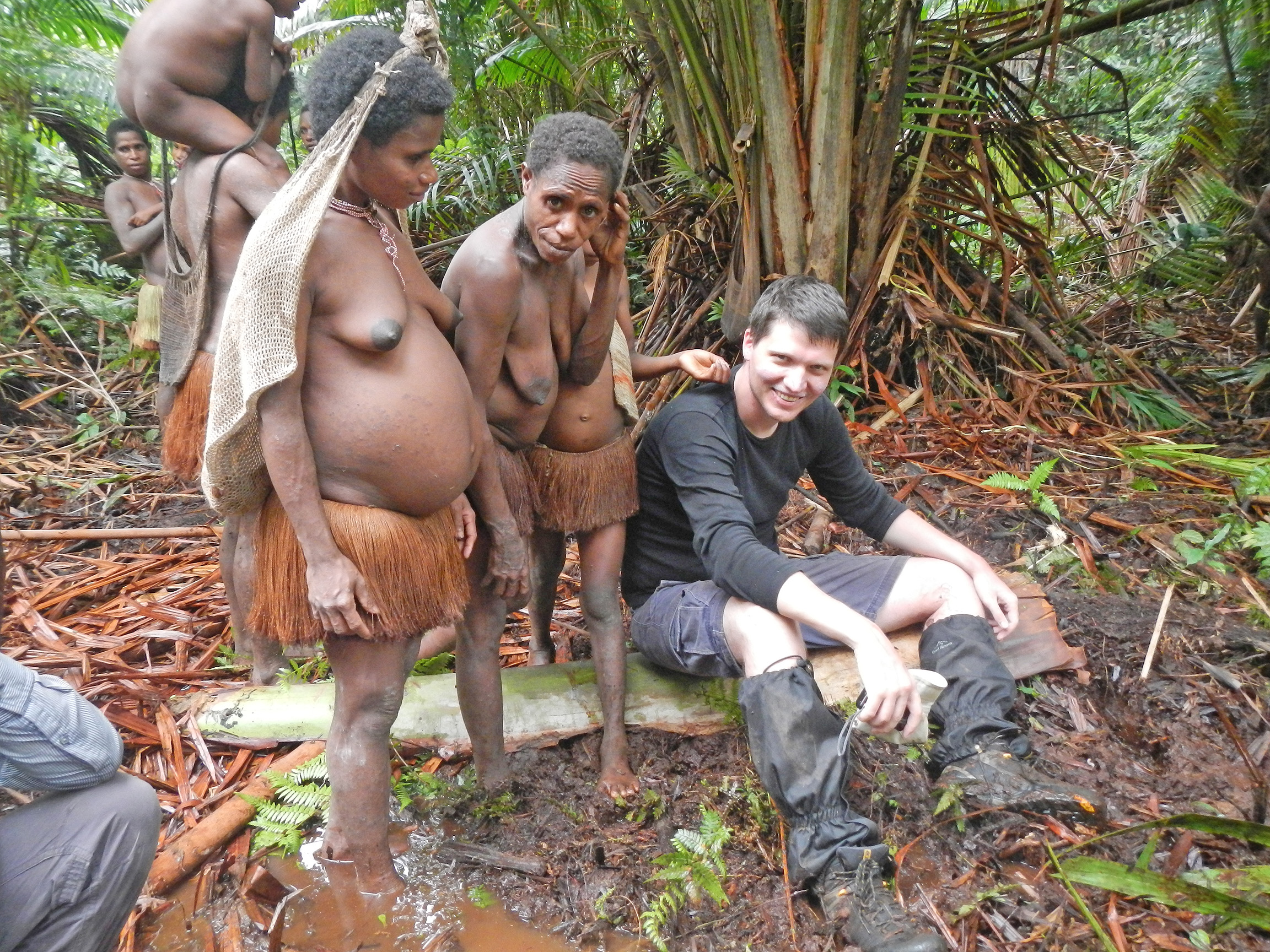
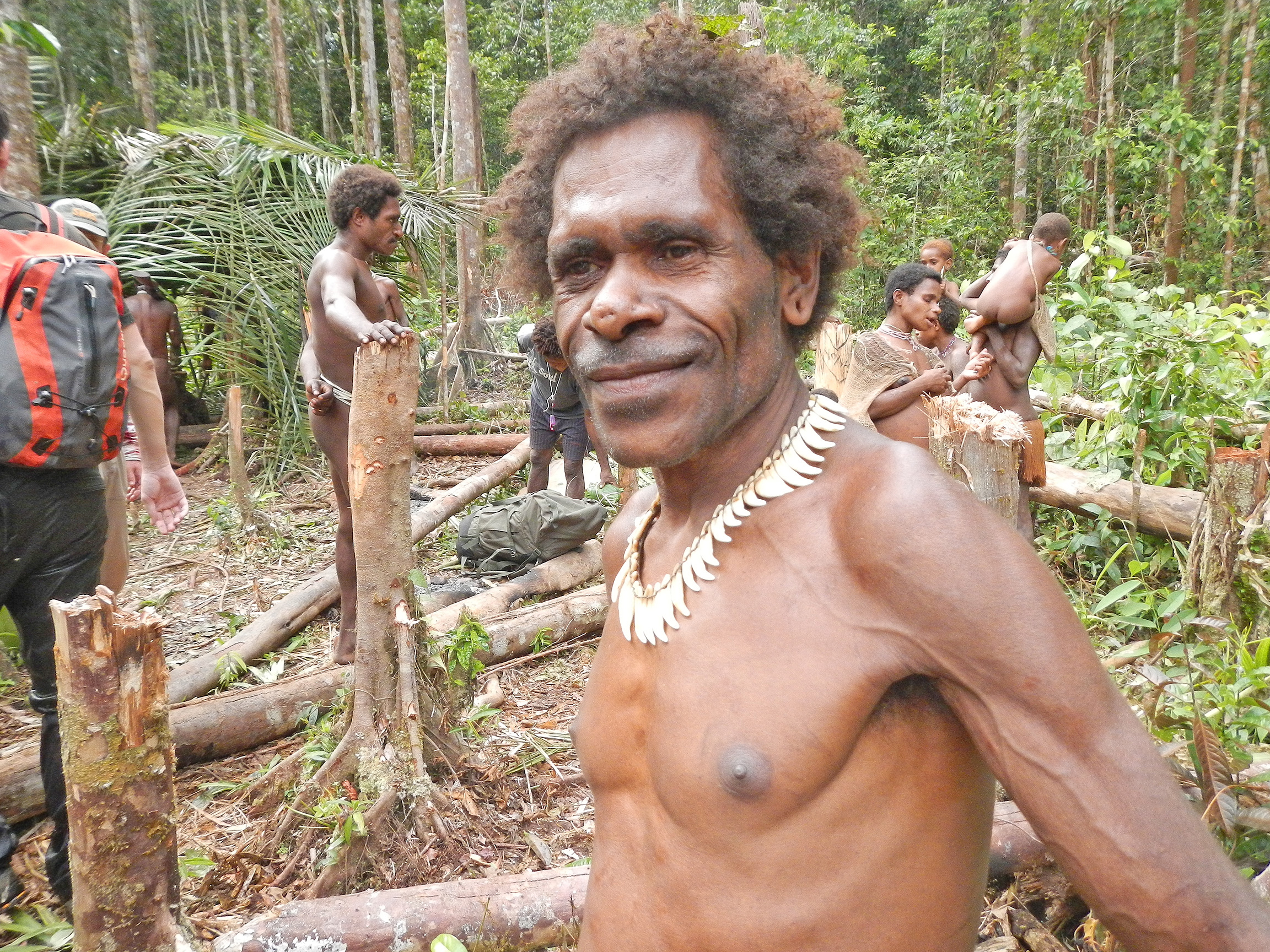
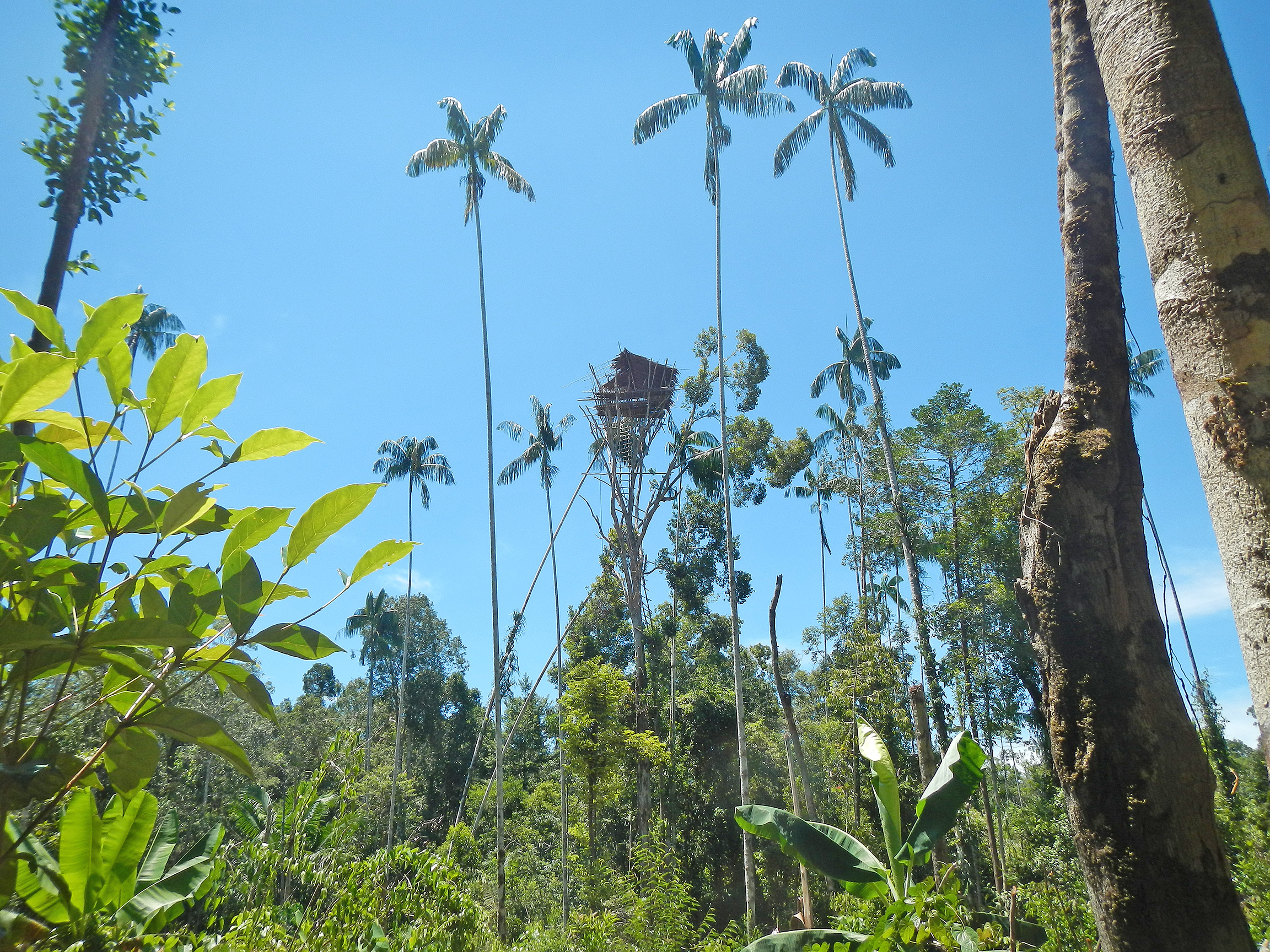
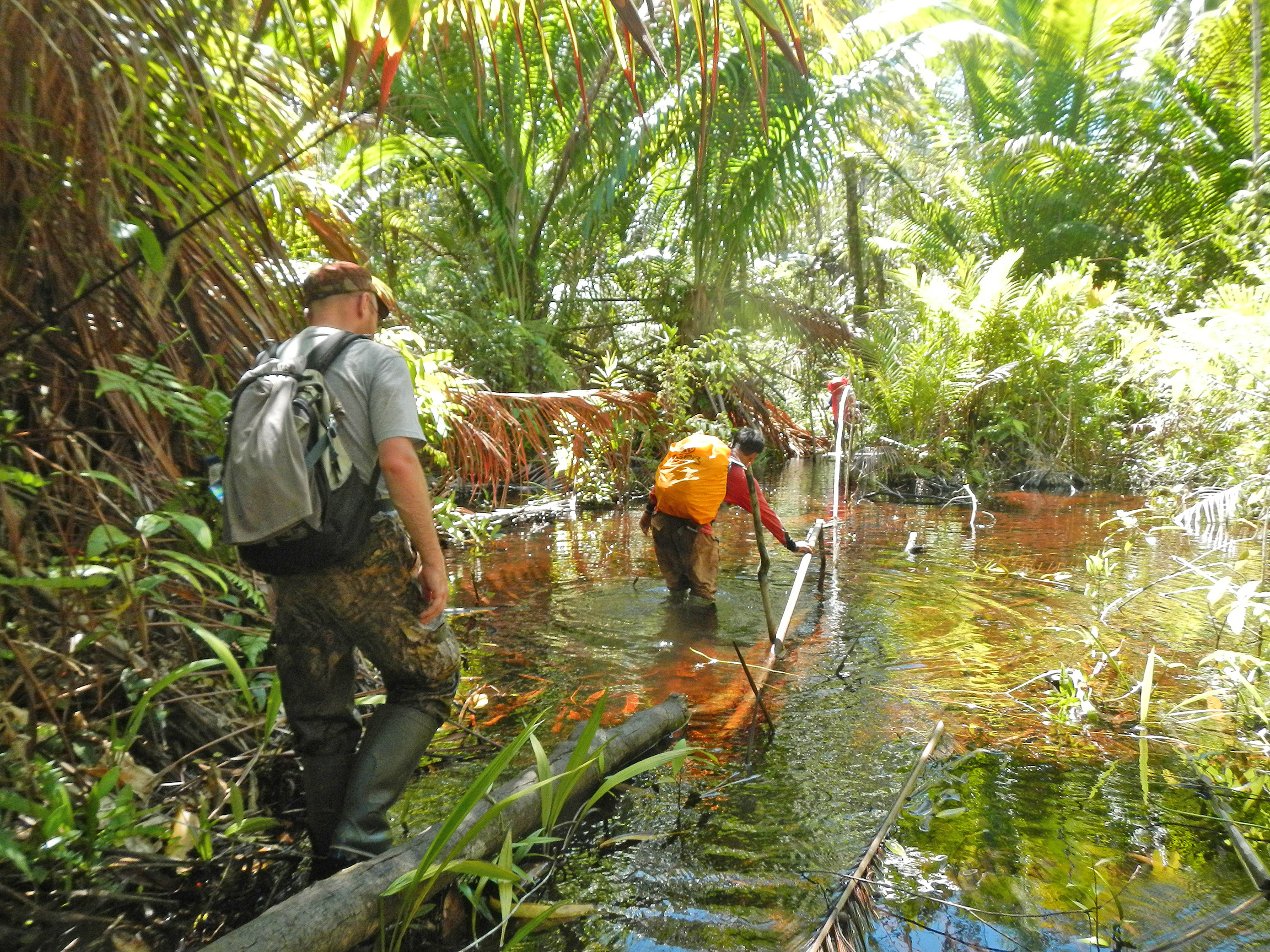
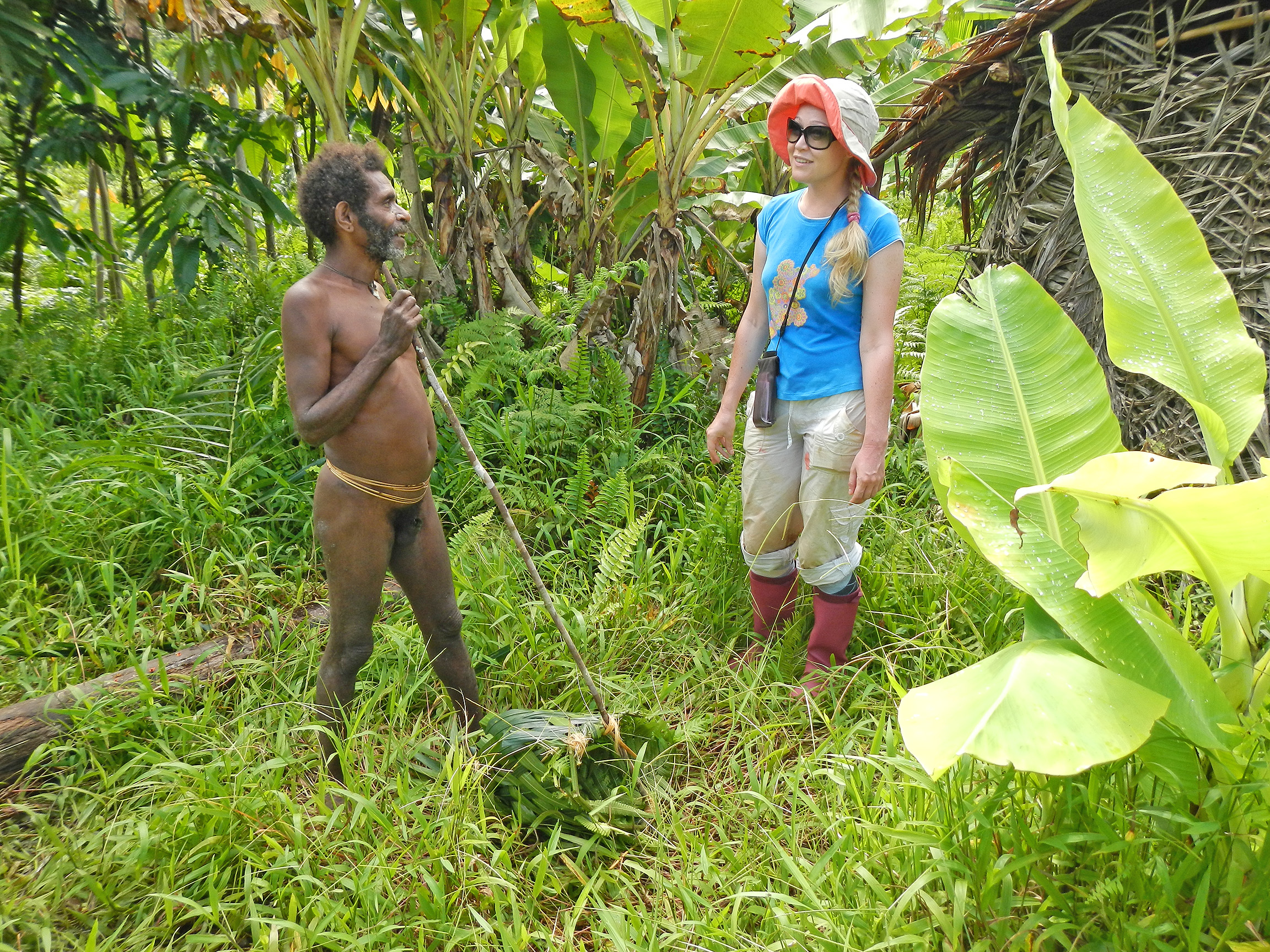
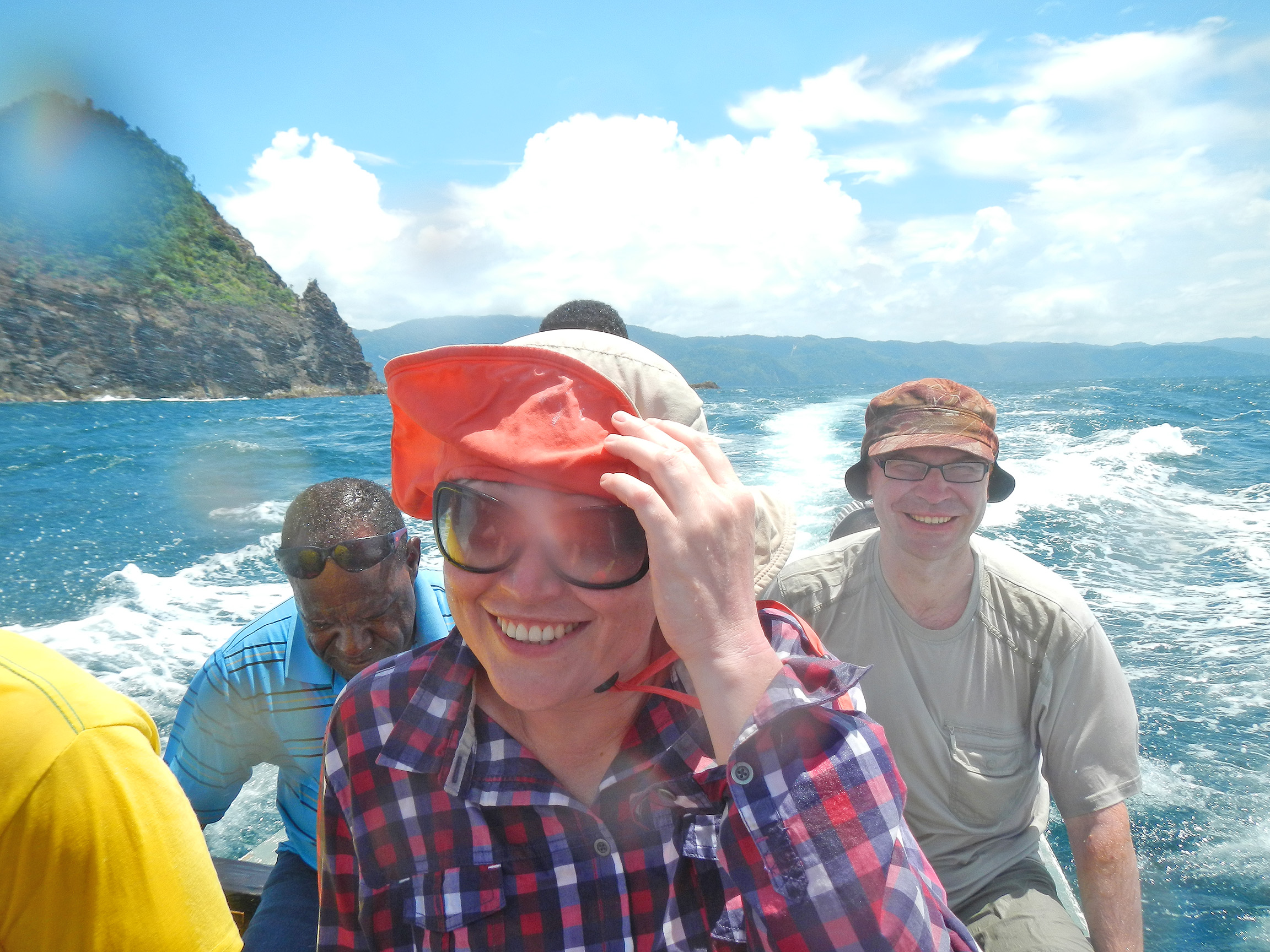
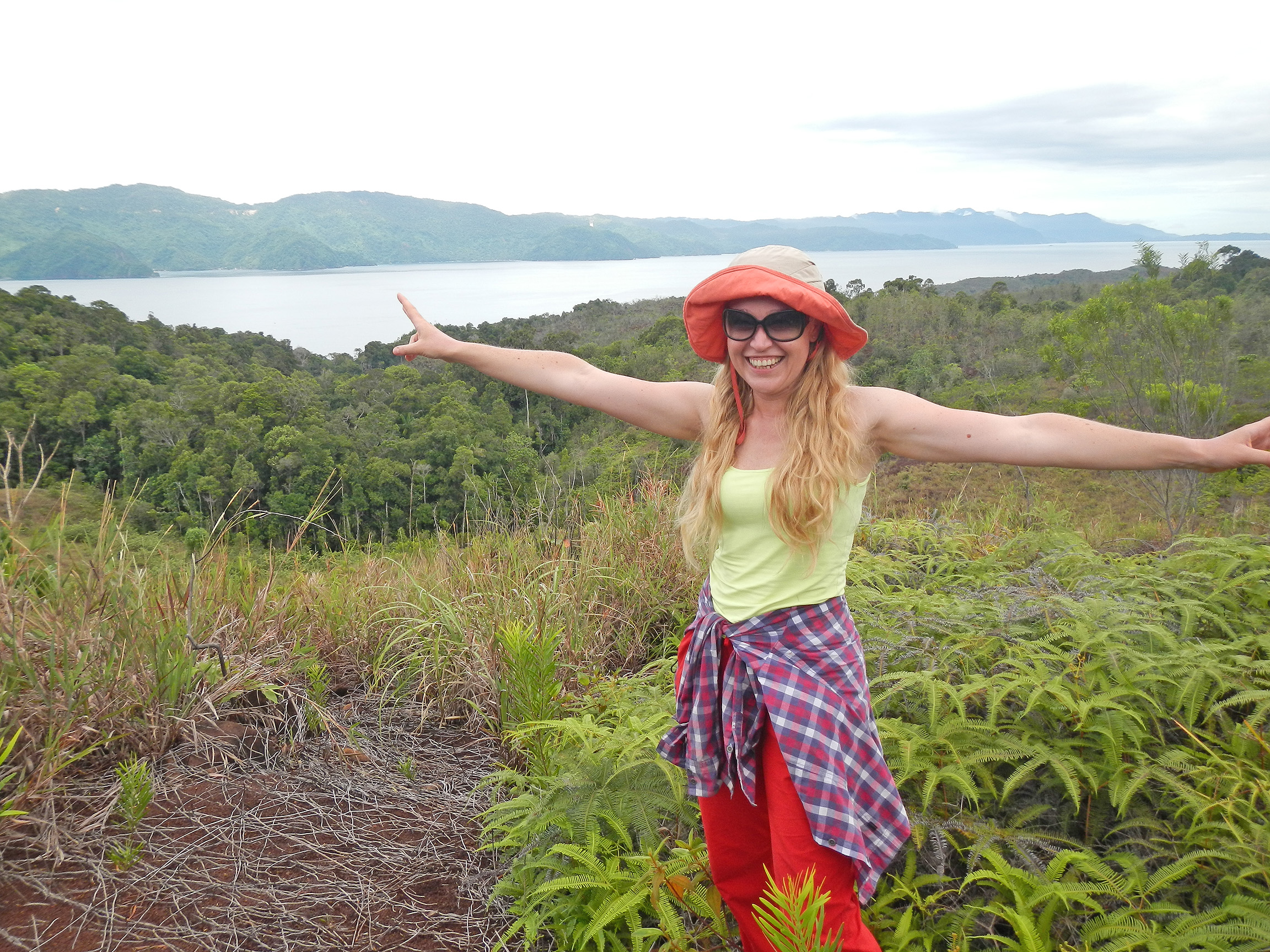
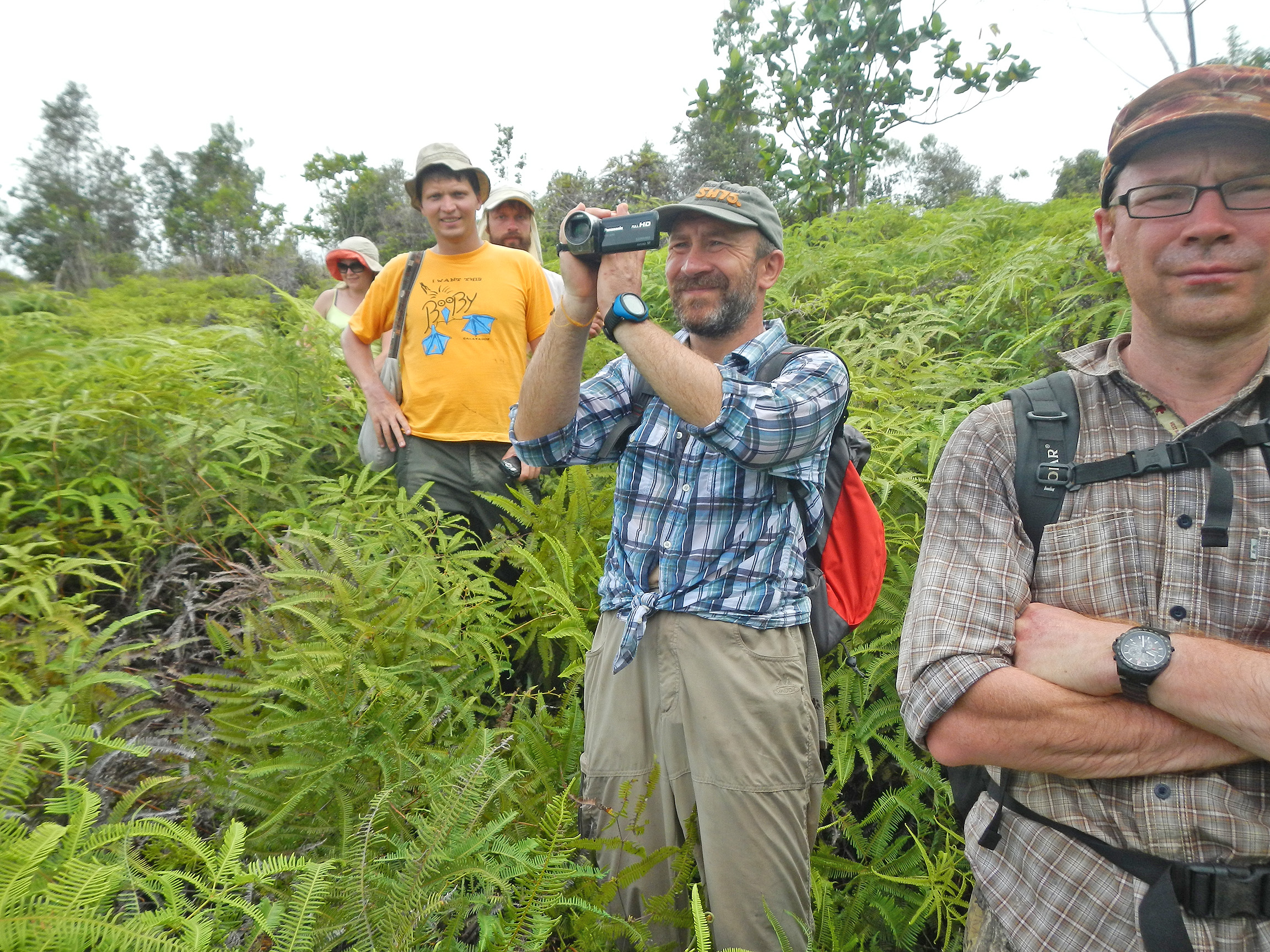
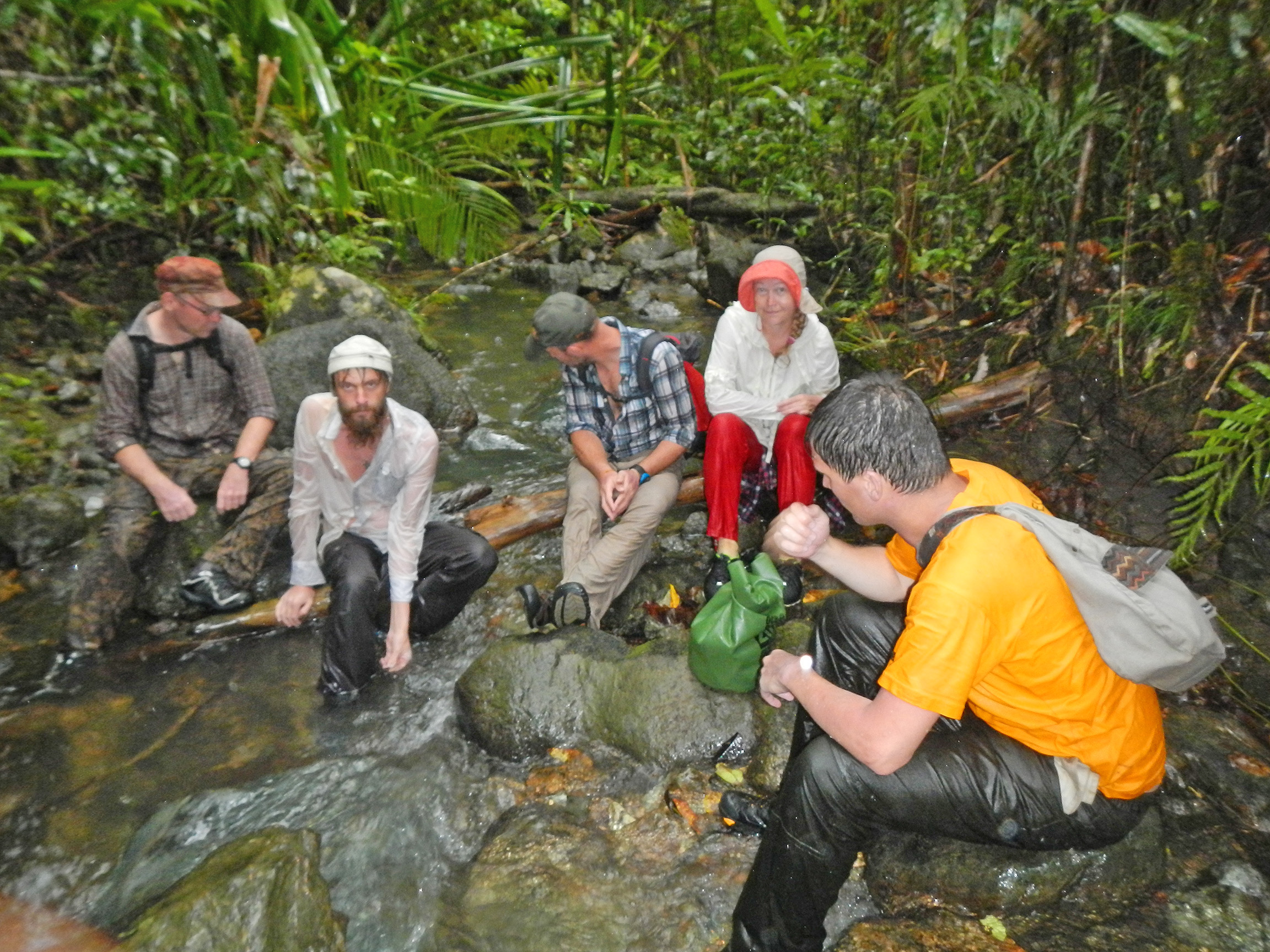
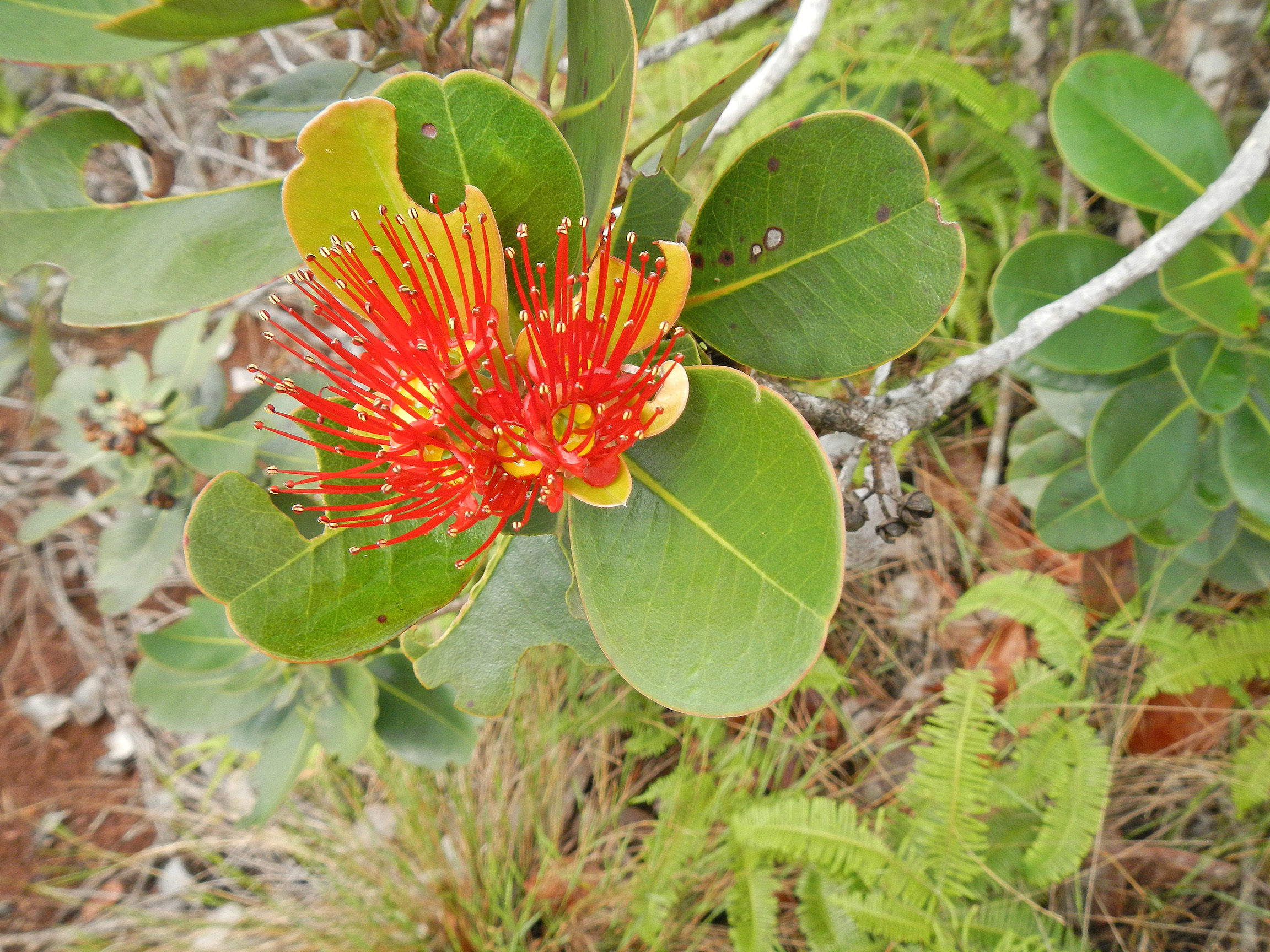
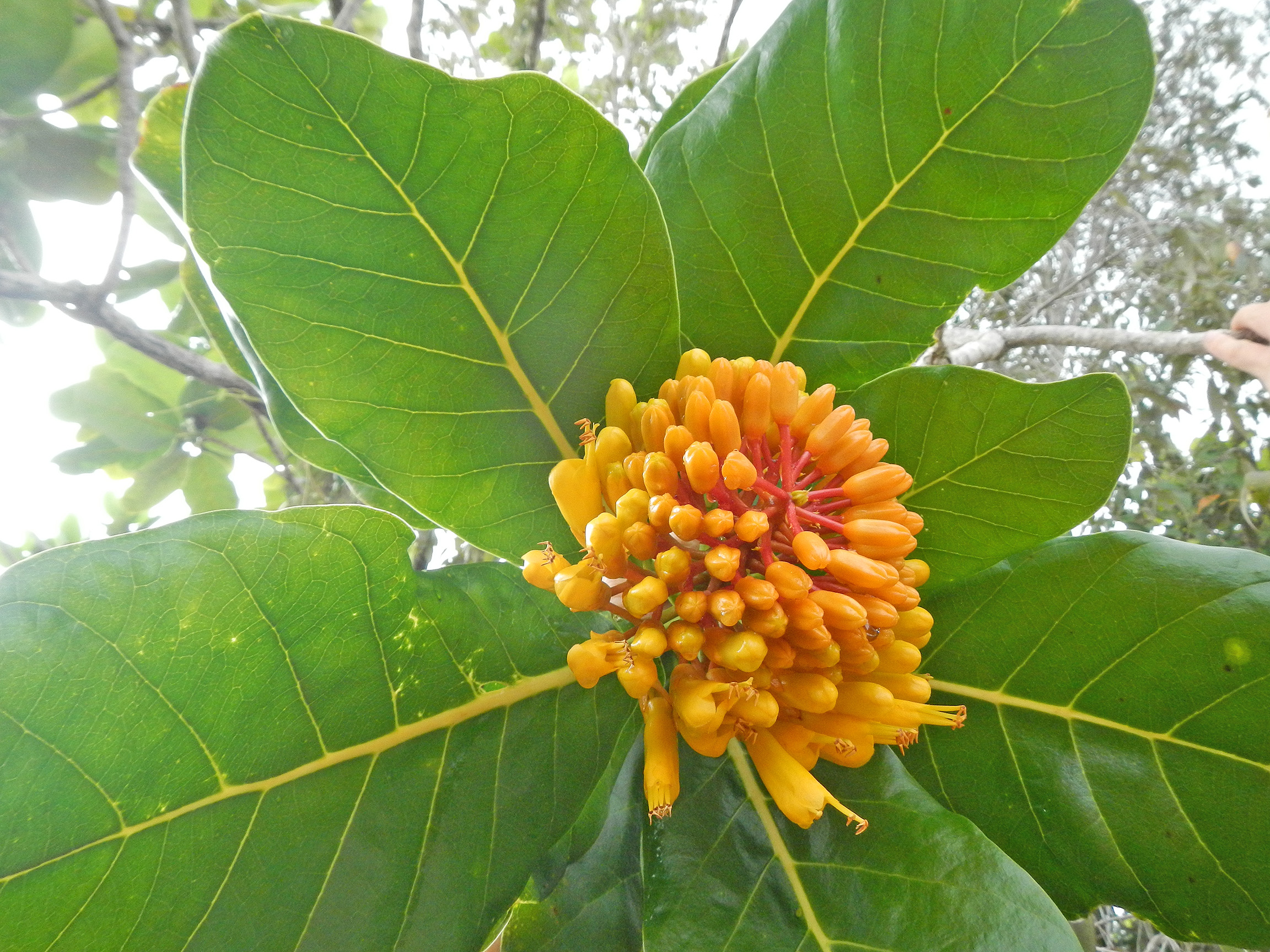

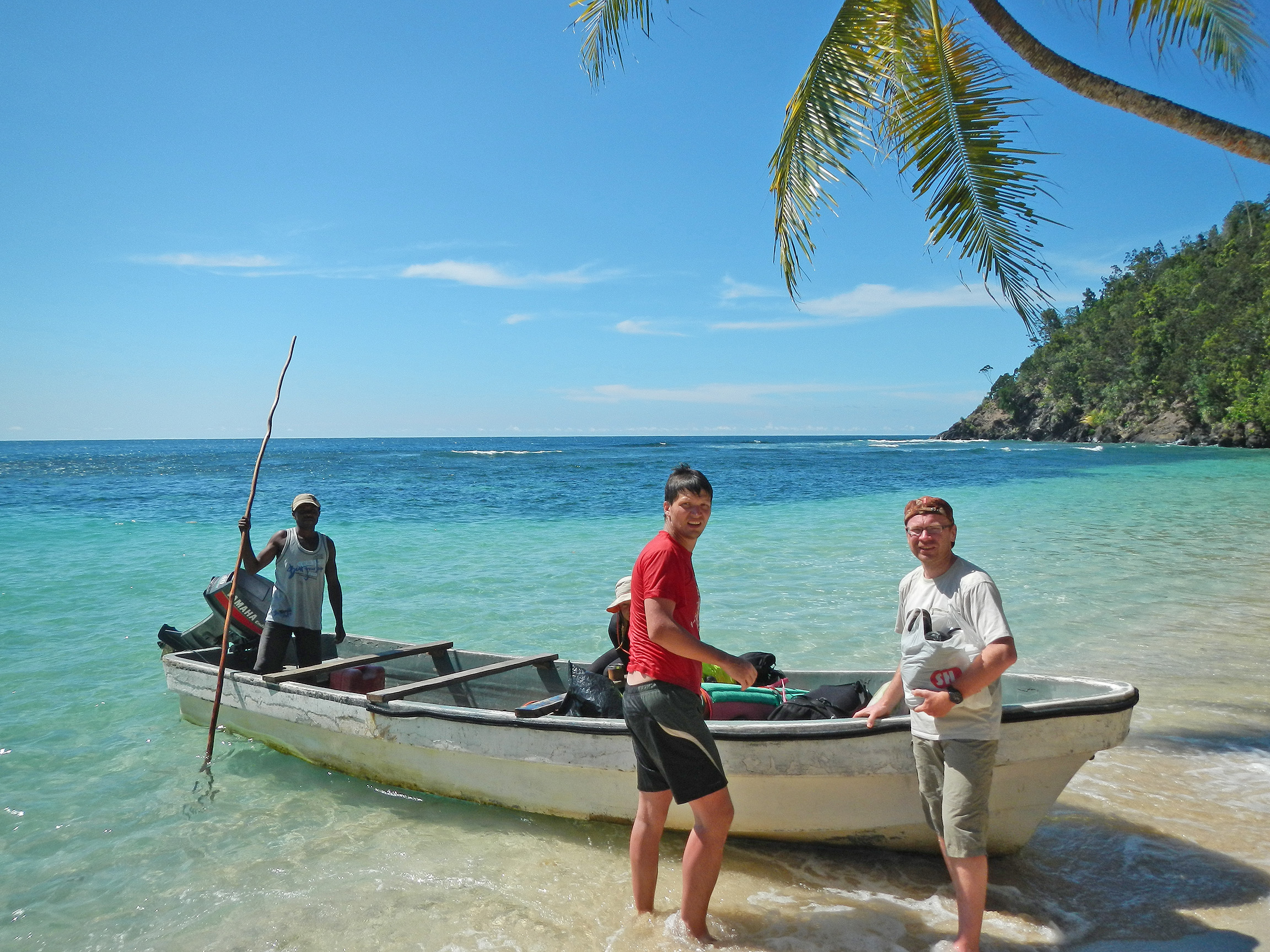
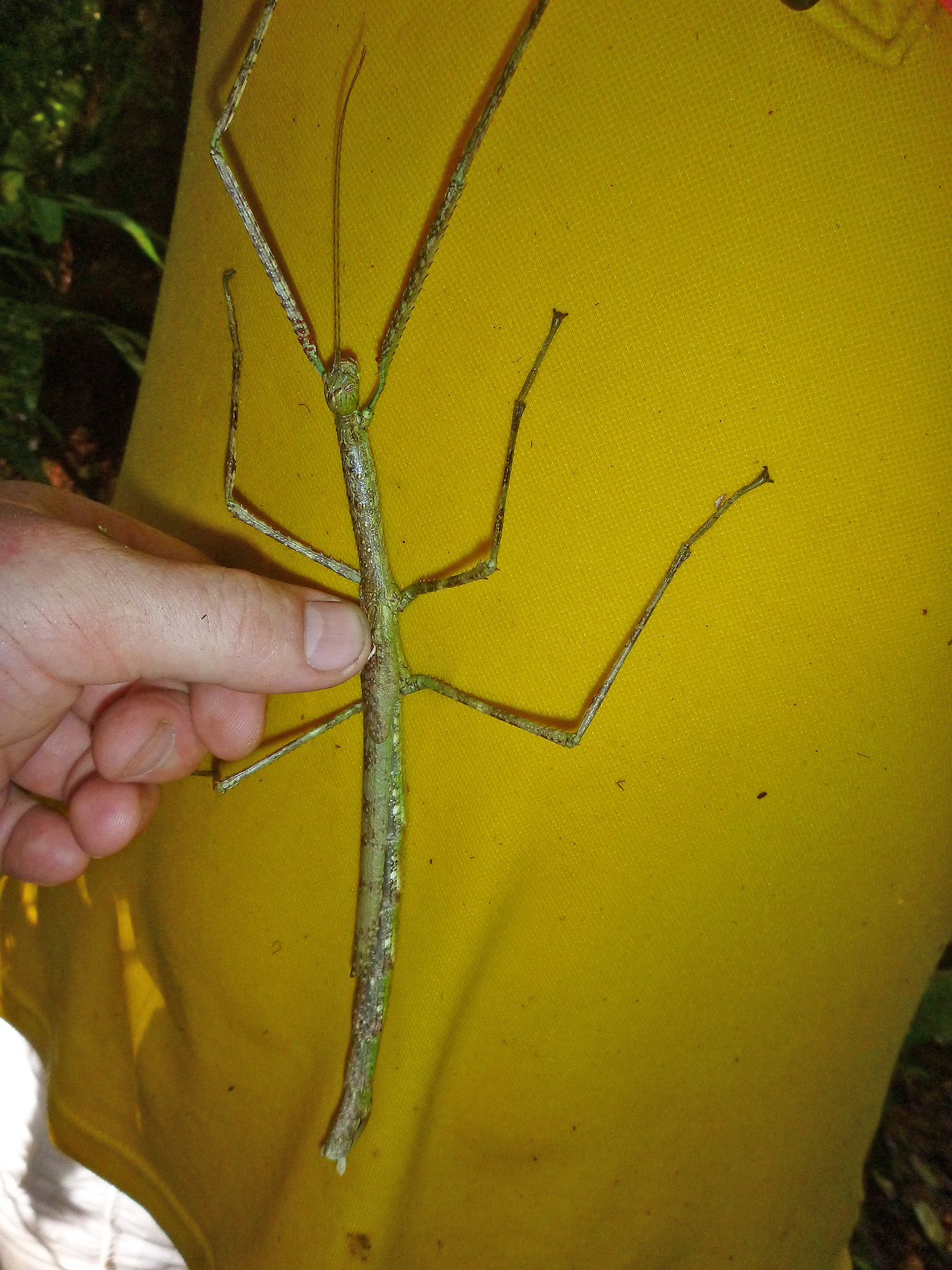
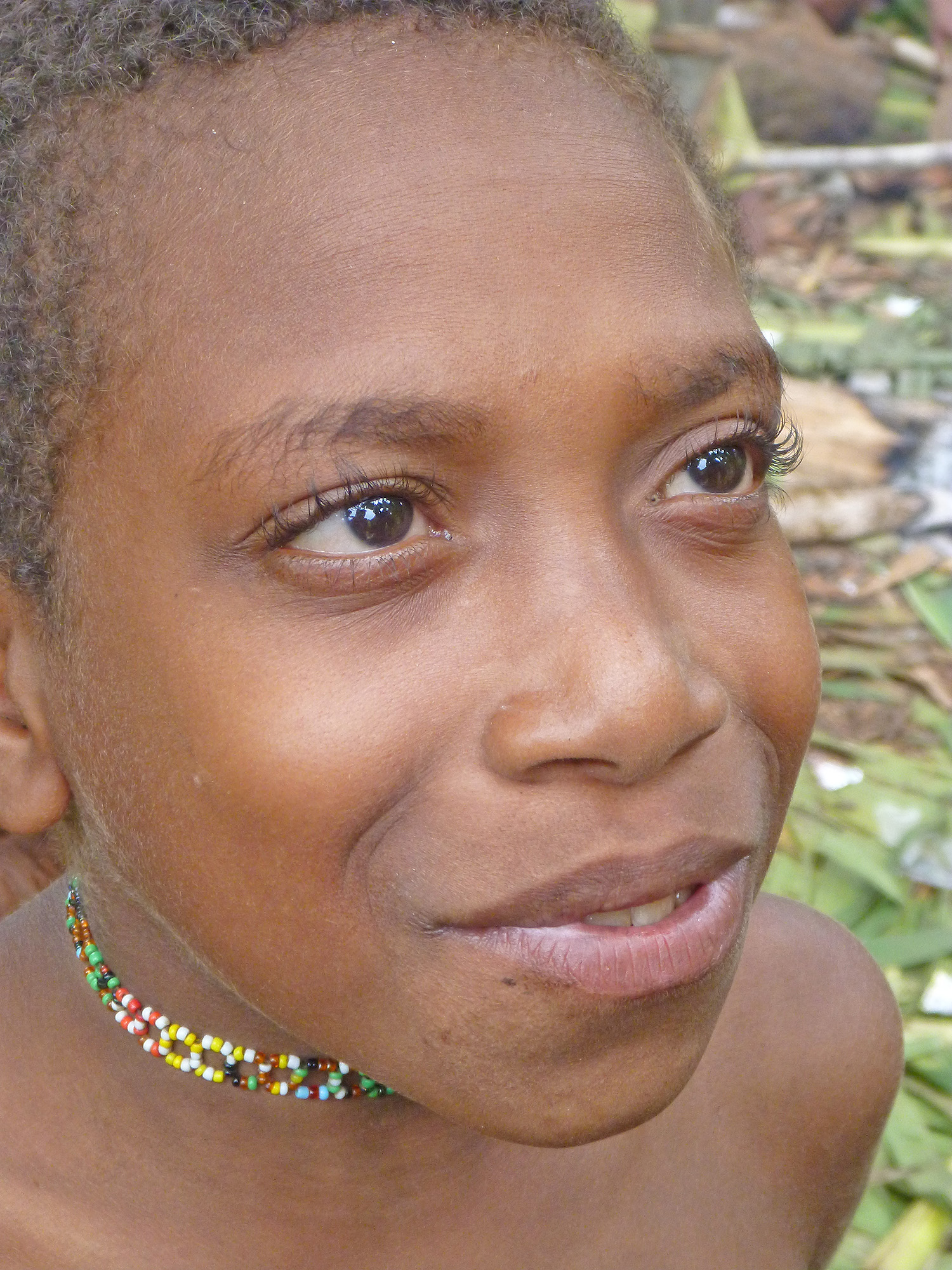
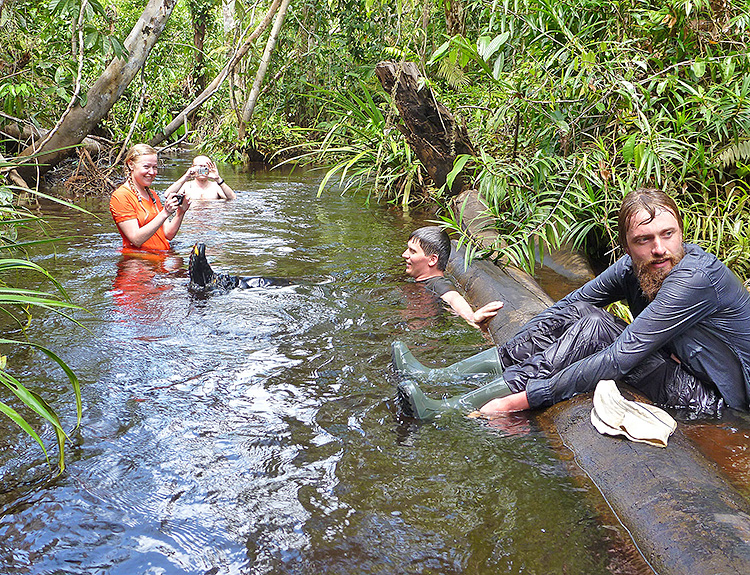
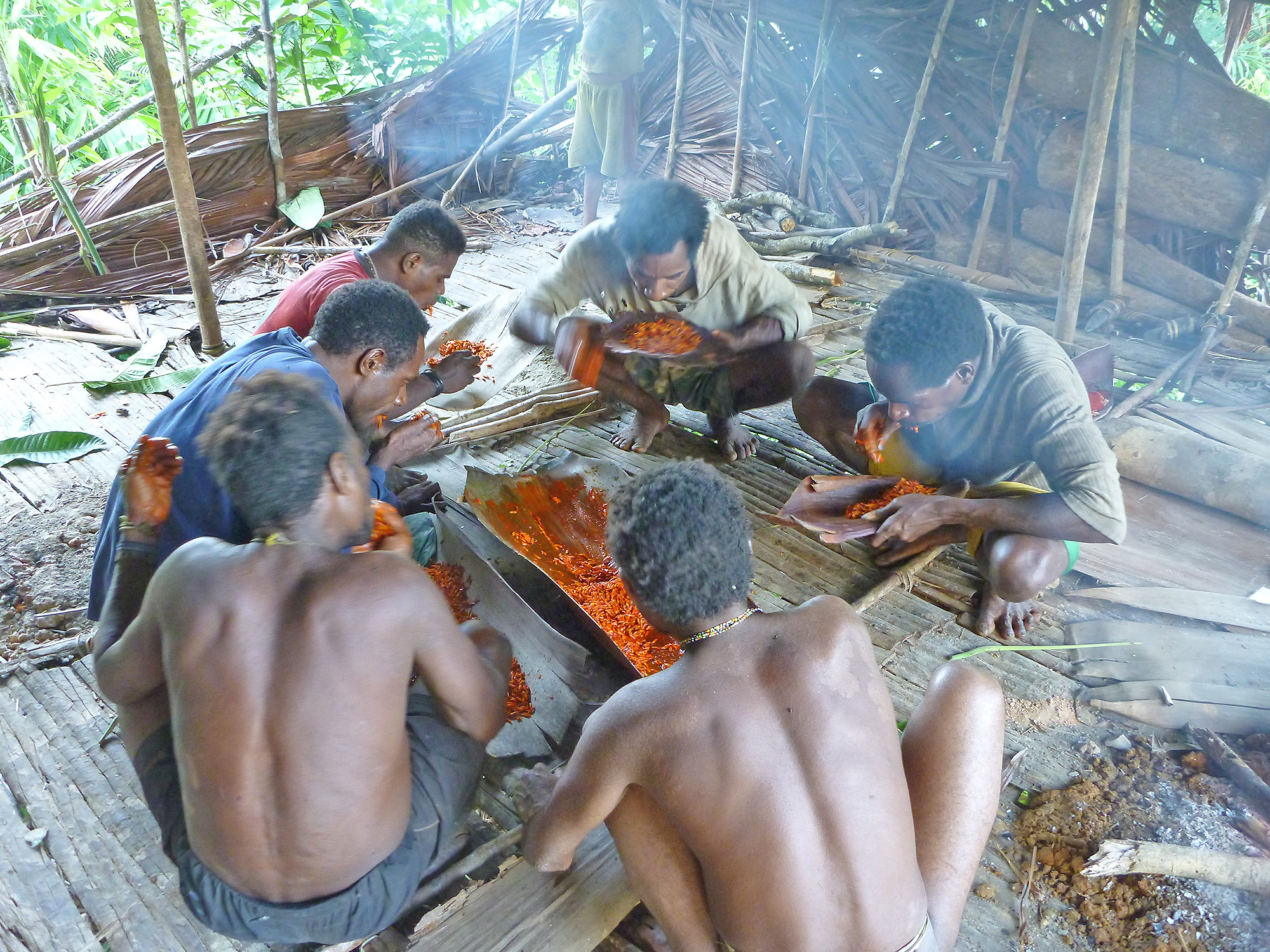
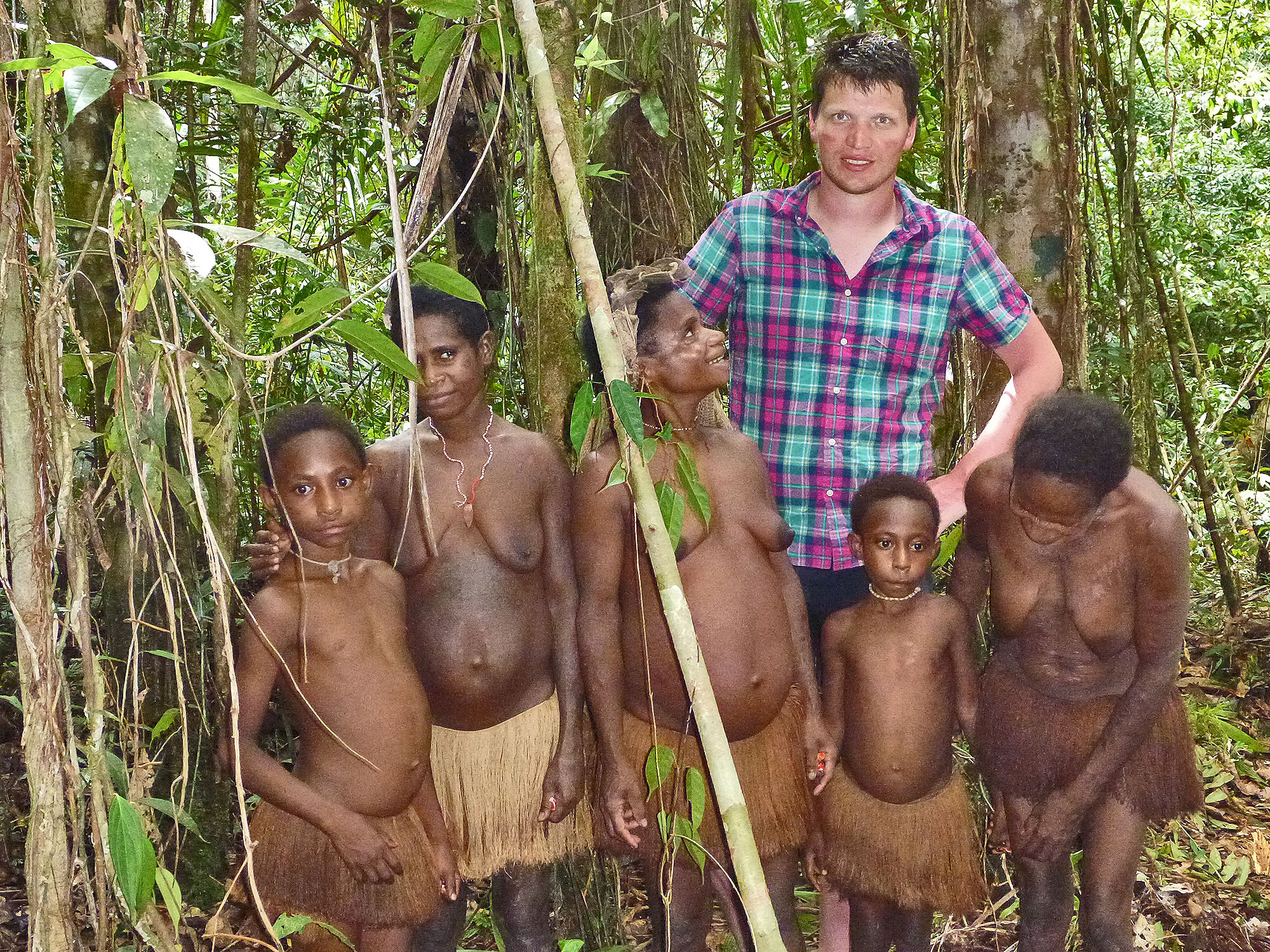
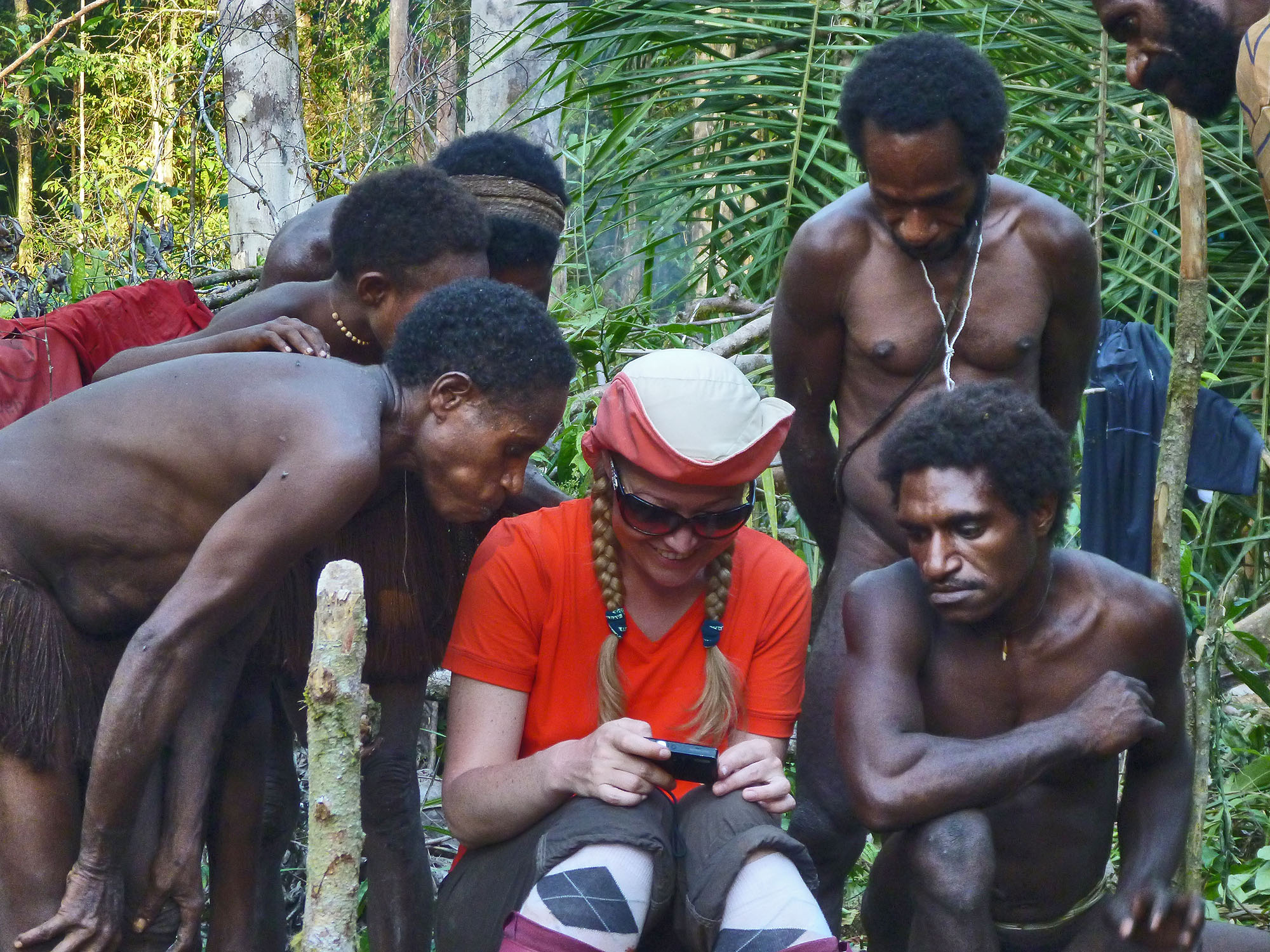
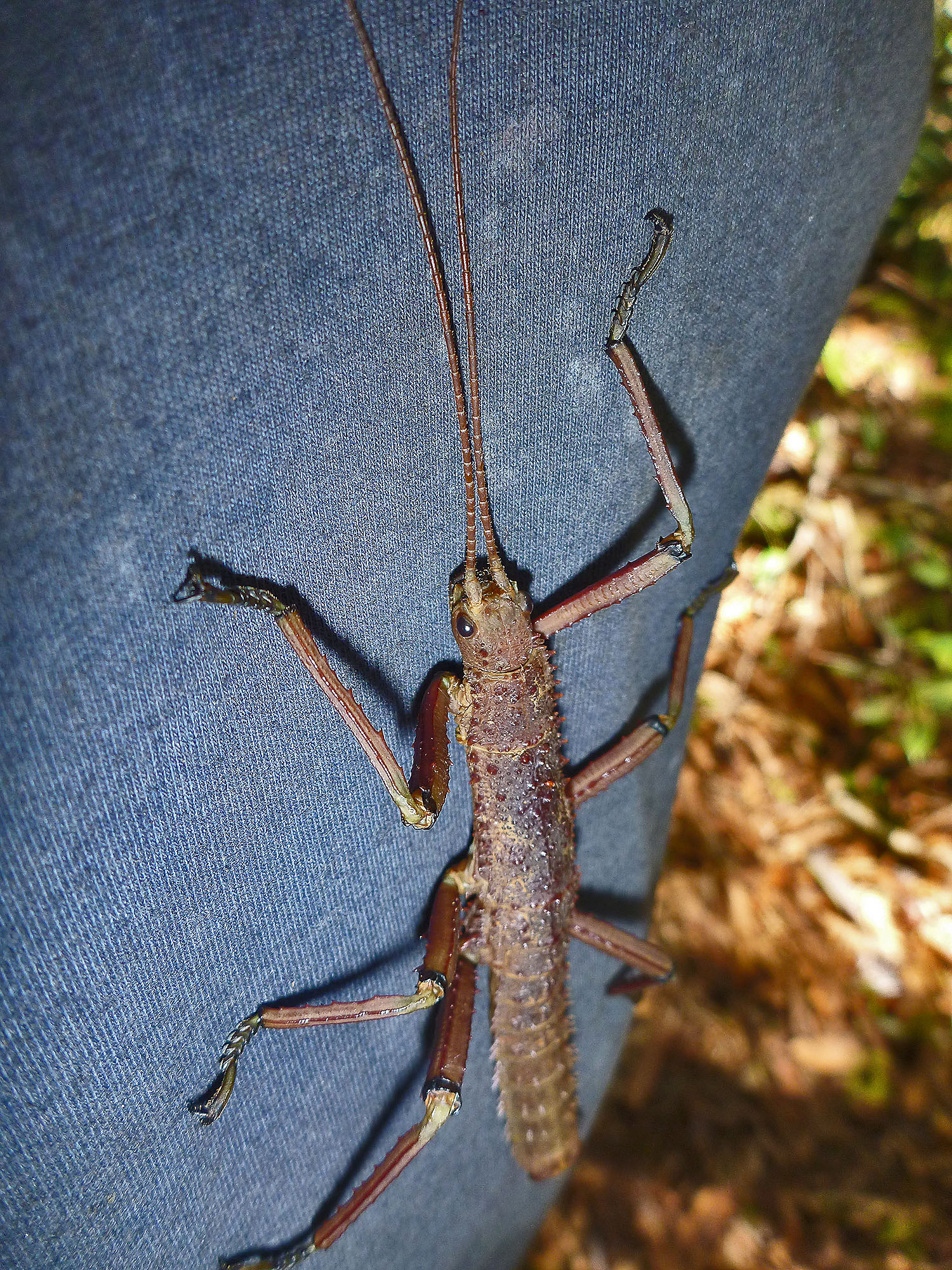

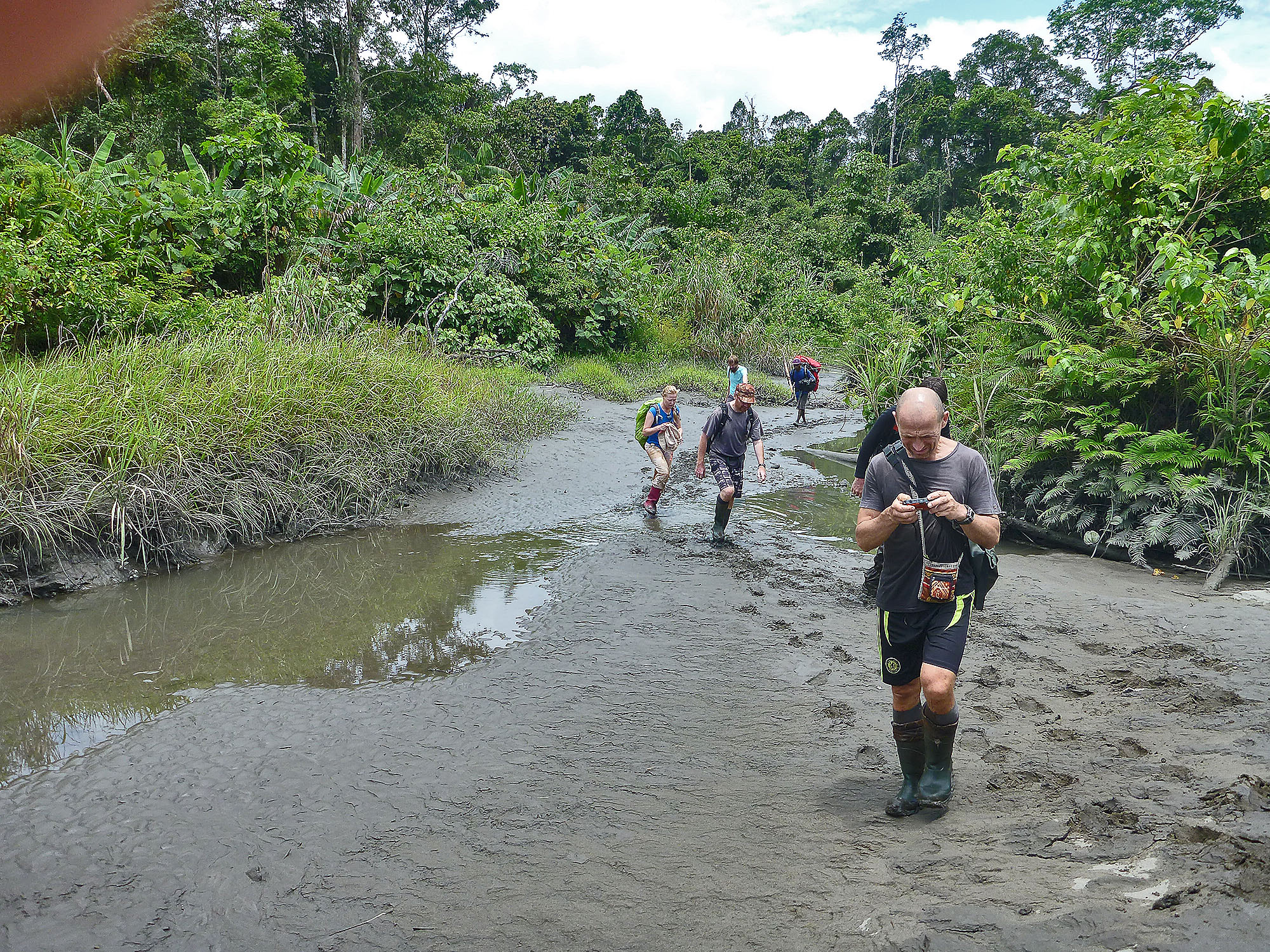

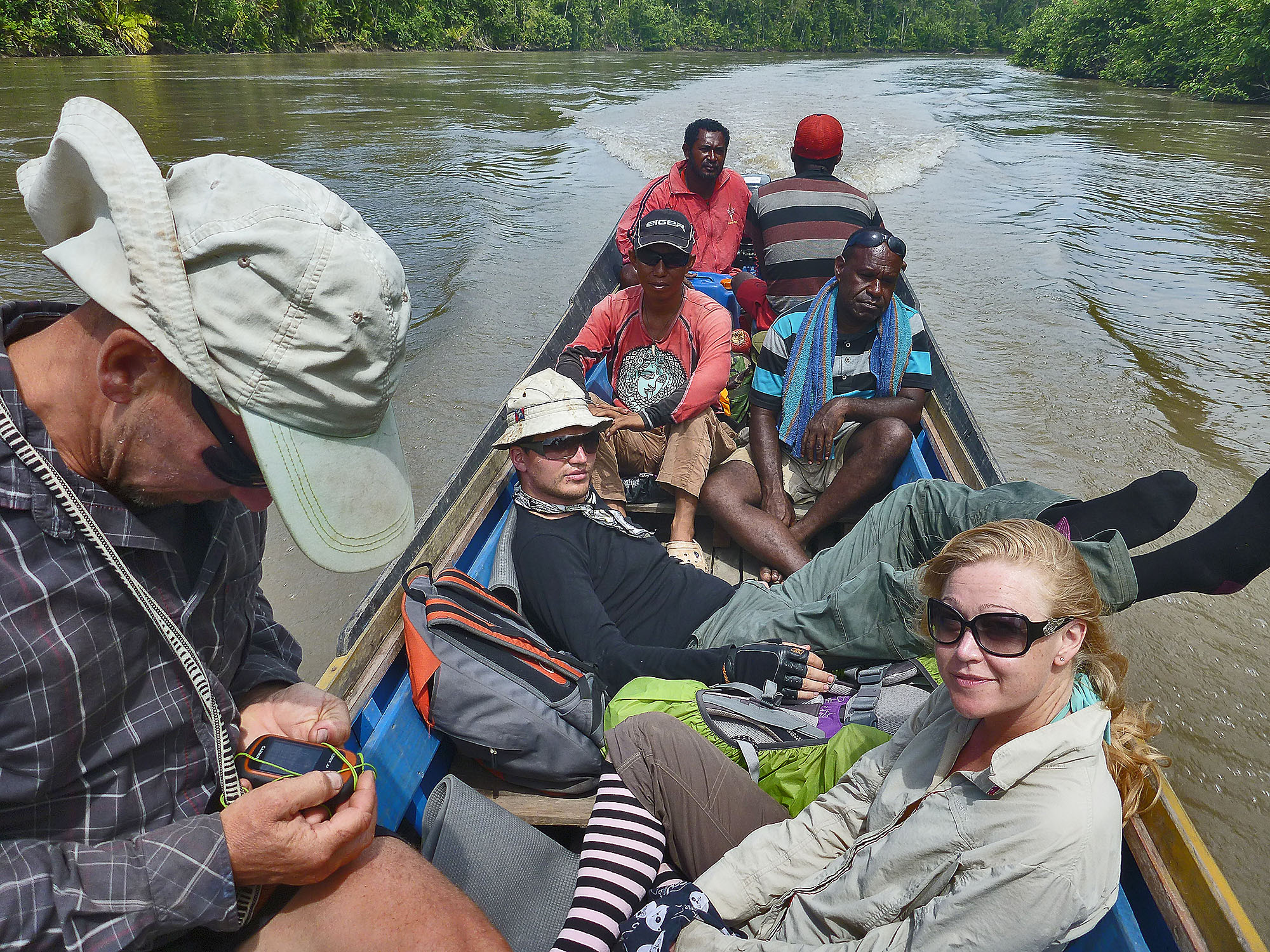
Itinerary:
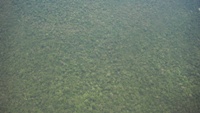 | Day 1 March 11. Meet in Jakarta, the tour takes a night flight to the island of New Guinea. |
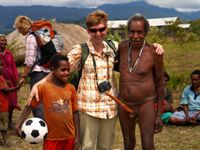 | Day 2 March 12. Fly from the south west to the north east through the western part of New Guinea and over the ridges of Maoke, arrive in Jayapura (Sentani) capital Indonesian province of Papua. Where we will obtain the pre-arranged police permits. Leave all non essential items at the base, the tour then departs for the Wamena region (central mountainous part of New Guinea), Brace yourself for meeting the natives! The tour will get its first culture shock and meet the locals, ending the day with hotel accommodation. |
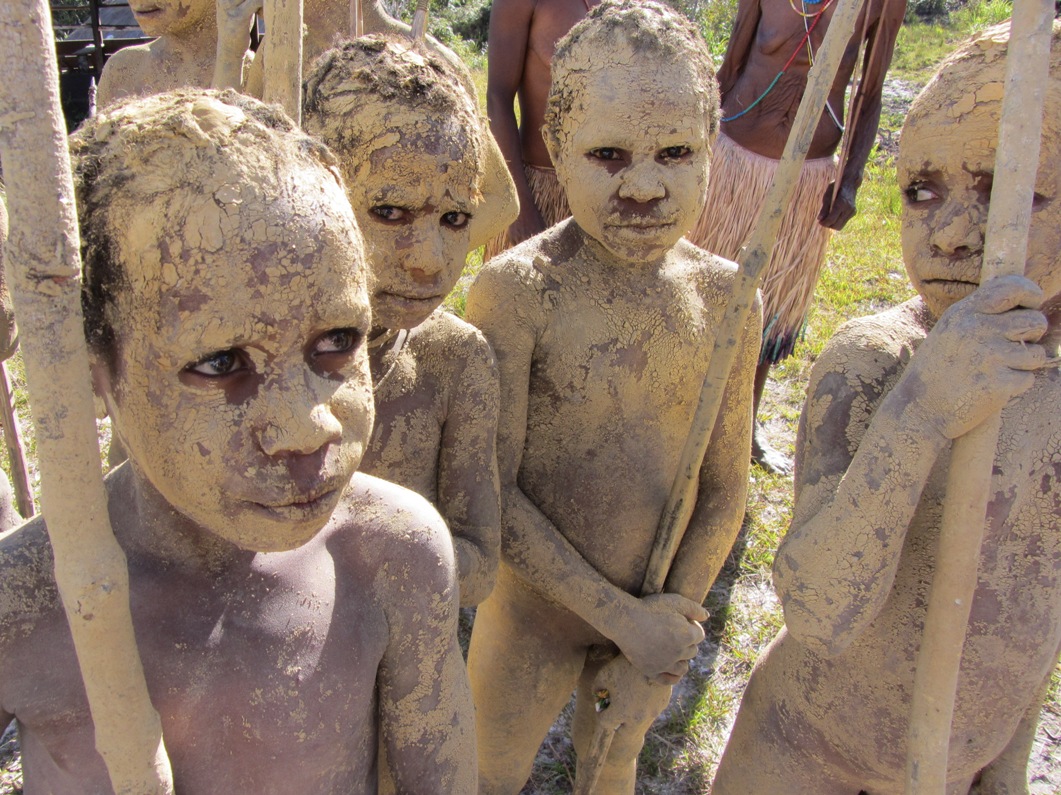 | Day 3 March 13. Early in the morning we drive to the far north-western part of the Baliem Valley, to visit the Lani hill tribe. Equipped with tents, mats, sleeping bags and food for 2 days. It takes 6 km trekking to reach the caves close to the village (be careful not to walk here alone, unstable rocks). We journey along an underground river with lanterns, we see Papuans on the way catching river shrimp. Visitors can take an evening tour of the neighboring village with a guide. Night in a ‘honai’ - traditional Papuan round house with a thatched roof, it’s very clean and comfortable. For those who prefer not to sleep in the house, you have the choice to stay in a tent. You will need a sweater at night, dinner will be around a campfire in the honai. |
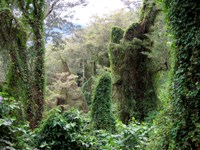 | Day 4 March 14. Excursion to a mountain forest (with a maximum altitude of 2300 m.), studded with orchids, azaleas and predatory Nepenthes (as seen in the movie"Avatar"). Papuan children catch mice, small marsupials and spiders which all goes into the food (if you are offered this politely refuse, their generous nature means they often don’t have enough for themselves). Unusual plants, unusual natural resources - and the continuing tale of the wondrous things that surround us. You will have the opportunity to purchase interesting household items, jewelry and weapons as souvenirs (it’s recommended that you support the village hosting us with these purchases). Return to Wamena, along the way you may see the river ammonites which prints from the Paleogene marine mollusks. The tour ends with a night in a hotel. |
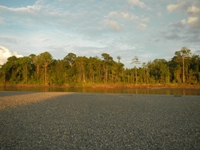 | Day 5 March 15 Flight to the south of New Guinea, transition to the river Brazza with the Papuans, armed with bows and arrows, stop at the guesthouse. Last preparations for the expedition, purchasing food, tobacco and fuel. Evening walking along the road, seeing fireflies and exotic insects, stretching our legs before long journey by boat. |
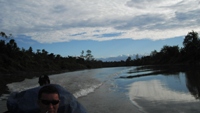 | Day 6 March 16. The tour takes a boat along the river for about 10 hours. Travelling along the River Brass and one of its tributaries, stopping for short breaks to swim and cool off. Along the way you may see crested cockatoos, breath taking papua Kala (hornbills) and red-eyed singing starlings. Drifting by the small village of the Chitakov tribe which are part of the river Asmat population. Spending the night on the riverside beach, an extremely wild place, where even the missionaries haven’t ventured. |
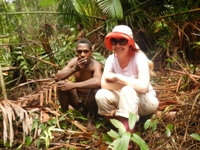 | Day 7 March 17. After about 3 hours on the boat we are met by our conductors, porters who carry the general cargo, please take a small backpack with any essential items, and we go deep into the forest. Here you can witness various exotic plants - nepenthes (plant predators) Sterculia, Canarium, myrtles; as well as sets of mantises and Phylliidae. You may be lucky enough to see bird spiders. You will spot the traditional dwelling, the tree house "Qaim" and the small (female) house - "Kou" which is a typical construction of the Korowai tribe. Here the tour rests and tents are erected. We make the first acquaintance with these jungle kids. |
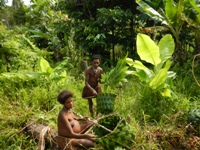 | Day 8-9-10 March 18-19-20. The trekking tour continues with frequent swimming breaks to cool off. We set up camp near the traditional “Qaims”. In 2012 and the spring of 2013 we were the first white men to meet the local Papuans-Korowai, the inhabitants of these villages were still using only stone tools. However, already in the autumn of 2013 the first time we met other white tourists in one of that communities. Hence now we go deeper to find even more remote communities. Starting from 2015 we aim to explore the remotest territory to search for and ascertain the size of the remaining undiscovered civilization of the Korowai. In the villages we can buy traditional items made by the korowai such as bows and arrows, daggers from thin cassowary bone, unimaginably decorated with the elytra of beetles, molluscs and various seeds. One of the possible routes is through the encampment of a kapayak family from the hostile Korowai tribe, known to be unfriendly towards Korowai. It is only this family that have intermingled with a Korowai, this good relationship has made it possible for us to be interact with them. Militant kapayaki build especially high Qaim (up to 45 m), and the notion of "woman" and "pig" is expressed as one word which signifies a military trophy. Another possibility is to stop in a village located near large expanses of sago palm, and here we may enjoy this venue, which is used for group gatherings to eat together, as well as negotiations between representatives from various clans. The sago palm is an essential resource for residents of the tropical swamps of New Guinea, and it’s related crafts - it is a perfect, unusual and very interesting object of observation for us. The same day we will spend time with the Papuans who prepare red pandanusovoe oil, collect weevil larvae living in the Sago palm, catch river fish, monitor lizards and various insects and other small creatures in the forest. Our catch will fill the special Sago bread, which is baked in banana leaves with pandanus oil. Observe, and if permitted visit the high-Qaim Korowai houses, witnessing their traditional ways of catching fish in a tropical swamp. |
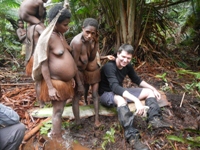 | Day 11 March 21. Going back to the riverside beach, sailing on the boat to where we set up our field camp. |
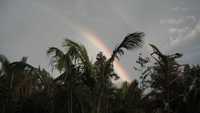 | Day 12 March 22. A 10-hour trip by boat with short breaks for swimming, arriving at the guesthouse. |
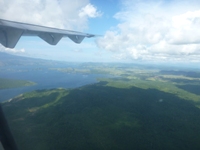 | Day 13 March 23. Transfer by car to the airport, with a flight to Sentani, check-in to our hotel. Here you will need to purchase items and products for the upcoming marine part of the trip. |
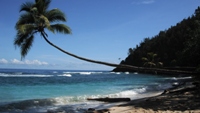 | Day 14 March 24. Transfer to the incredibly beautiful wild beach at the north end of New Guinea. In the forest near the sea there is a fresh water creek. You have the option to catch fish, swim (but stay within 5 m of the shore, due to beware a dangerous current), walk in the jungle which lines the sea. Spend the night in a tent, have dinner around the campfire, cooking the fish ourselves. |
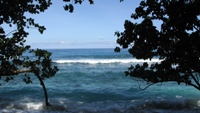 | Day 15 March 25. Enjoy further relaxation on the beach. Observing the Blyth's hornbill (Rhyticeros plicatus), Helmeted Friarbird (Philemon buceroides), Australian Koel (Eudynamys cyanocephala). |
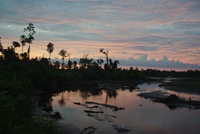 | Day 16 March 26. The boat collects the tour from the beach, returning to Sentani to stay the night in a hotel. |
 | Day 17 March 27. An early morning farewell to Papua and flight to Jakarta. You can spend the day here, walk in the center, go sightseeing. Finish with a night flight home or continue your trip … it’s up to you! |
Cost of the tour ($6100) includes:
Organisation, booking, supporting by instructor/guide of Secret Meridian - experienced specialist in tropical eco-tourism, all accommodation under the program based on 2 people sharing (additional charge for a single occupancy $200), registration and payment police permits for the areas with special protection rules (remote territories with limited tourist entry), other essential payments, such as fee per pass through the territory of local communities, all internal transport and transfers including taxes (except airfare Jakarta-your town and back), airport taxes, travel insurance in Indonesia, including searching and rescue activities, local guides experience and explore the territory of the local communities, porters for carrying shared expedition equipment in country, cook, individual tent, ground mat for camping, meals and accommodation during field camps (including on the beach in the northern part of New Guinea), public utensils for the field kitchen, GPS, satellite phone, fully equipped first aid kit with modern anti-malarial drugs.
Not included:
International air travel to/from Jakarta, meals whilst outside of field camps, visa for Indonesia (if required), souvenirs, tips for local guides and porters.
Important Information:
- Before purchasing tickets to Jakarta, please contact our company to discuss travel arrangements as well as the contract, terms and conditions.
- This tour is for the people who are ready for all the difficulties of such a journey, you need to be sociable, patient and humorous. Hot water will be not available everywhere. Be ready to to rise early - almost every day, go to bed early. Excursions are lengthy, but you only need to carry a day pack or small backpack. The climate of the local jungle just awful ("bath" round the clock), but contributes to weight loss.
- Minimum age of participants - 21.
- There is a risk of Malaria in the encampment in southern Papua, therefore, before and during the journey you should take the appropriate preventative measures and precautions , given the risk of infection, before making a decision about this trip, please consult a doctor.
- You are expected to take responsibility for any valuable items (money, passport, etc.) For this trip you are required to have two backpacks, a small day back (30-50 liters) for short treks and everyday essentials. A main backpack (80-100 liters) for all of your other luggage, *carried by local porters during the jungle trek*. Each member of the expedition carries his/her backpack containing all personal items + tent + mat. The porters carry all of the shared expedition equipment (cooking etc).
- Everybody is expected to pitch in and build the camp.
- Expedition equipment, outdoor cooking, food stock, tents, awnings, and a satellite phone is provided for emergencies.
- Any luggage exceeding the weight limit is not permitted.
- Due to health and safety risks and the sensitive nature of our destination all final decisions or changes to the program are the responsibility of the team leader, as such by participating in this tour you accept his/her decision as final.
- Attention! Validity of your passport should not be less than 6 months from the end of the trip!
- The founder of this tour has a phd in geography.
Tags: expedition tour, adventure tour, ethnic tour, active tour, trekking tour.
Comments and reviews:
- // Author Dmitry Zemlyanoy, a member of the tour "cannibals Papua" in March 2013
- Hunting as a factor of social development (the experience of primitive African and Papuan communes)" - comments by the founder of this tour
- "You may be too late: Papua New Guinea" - comments by the founder of this tour
- Our short movies and stories about the Korowai live-style, you can also sign up for
- // by photographer George Steinmetz
- Some at the Stanislav Kuznetsov blog

